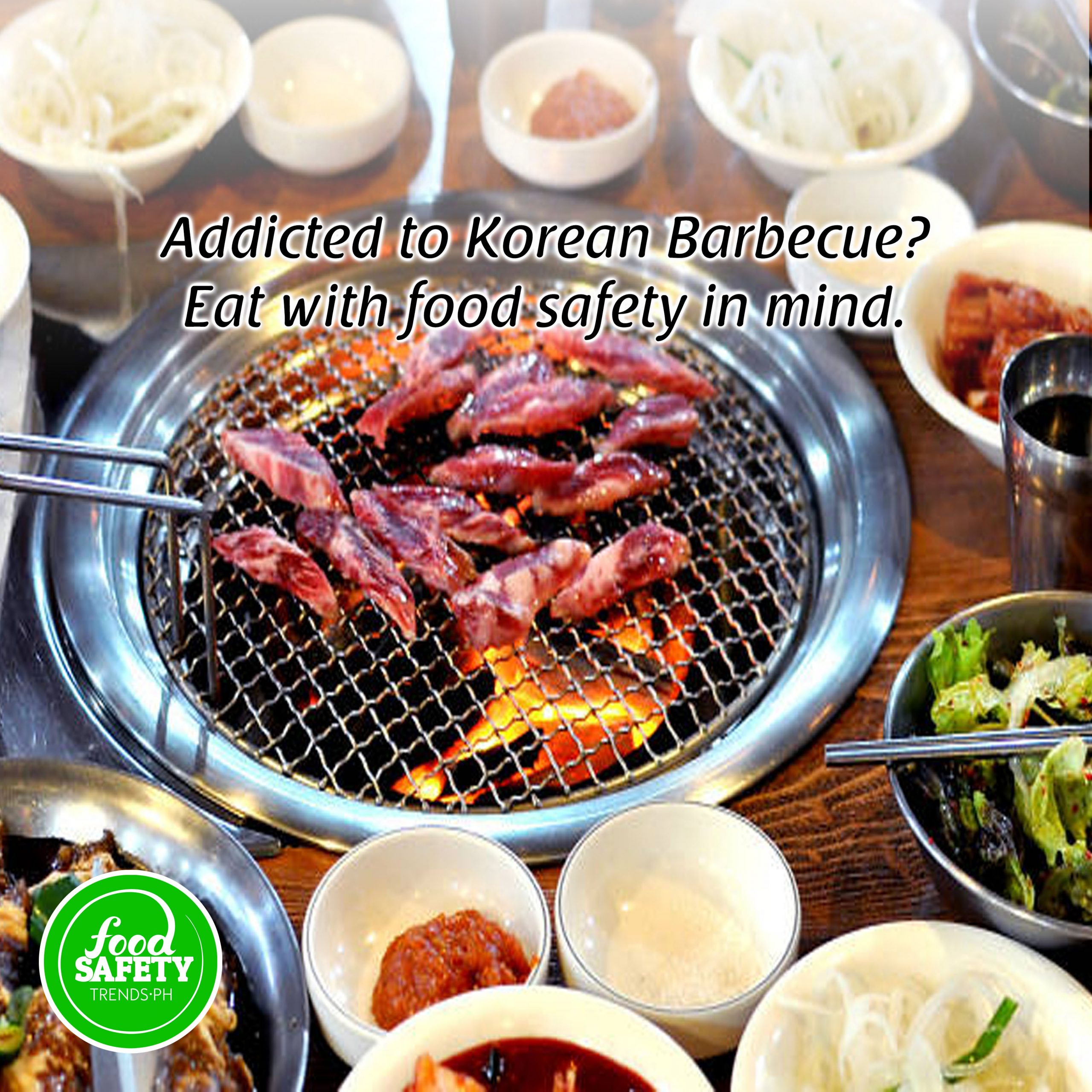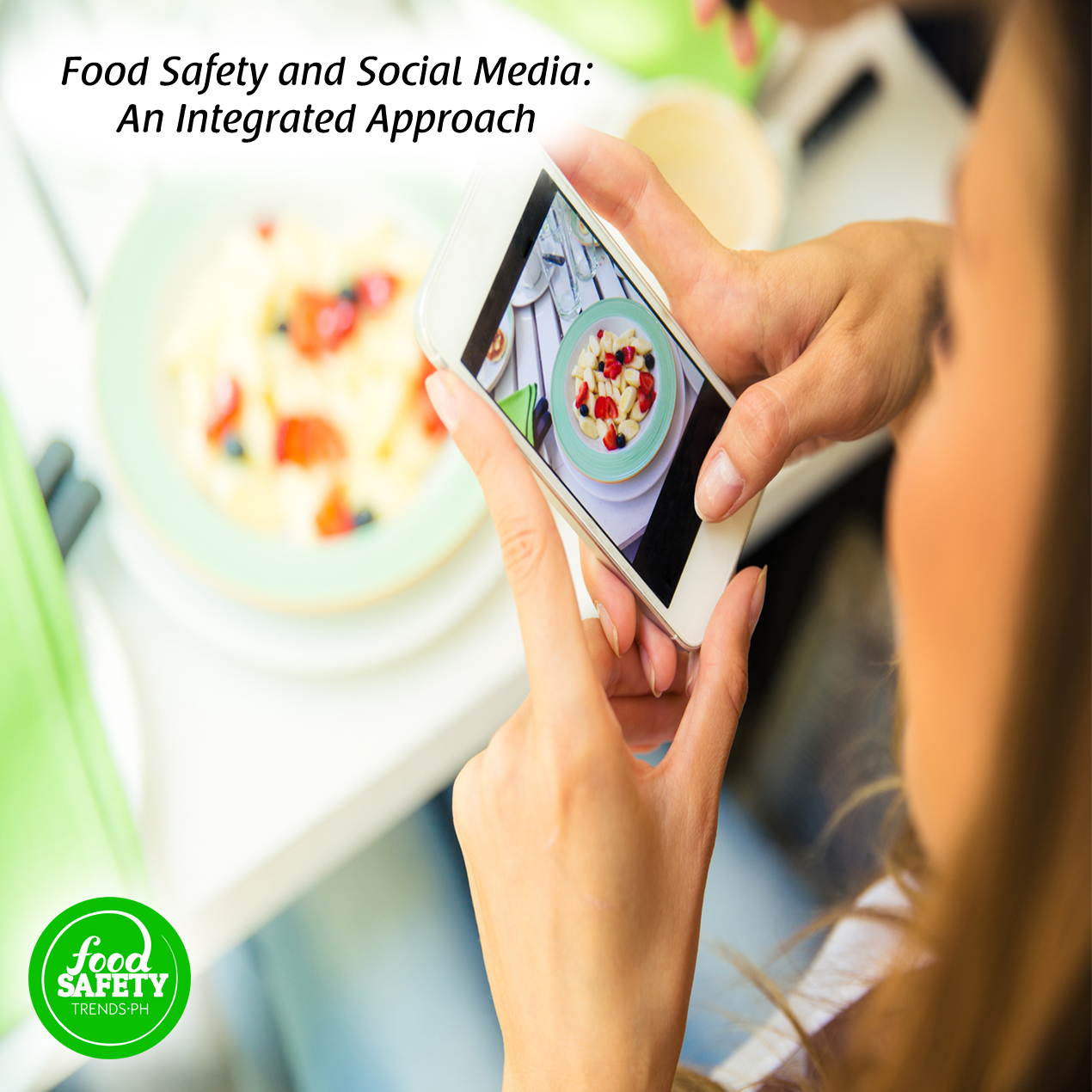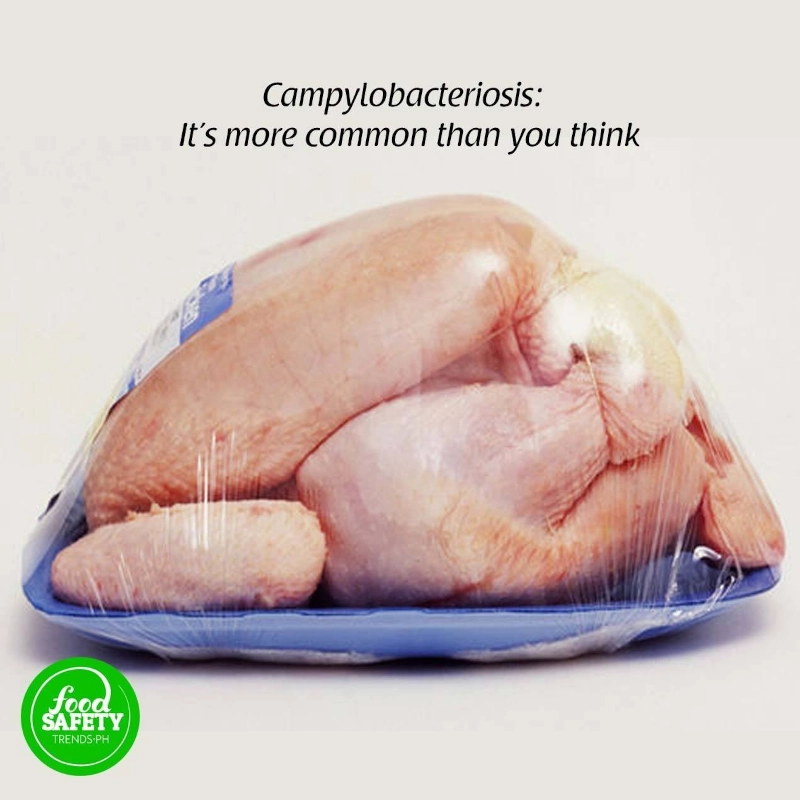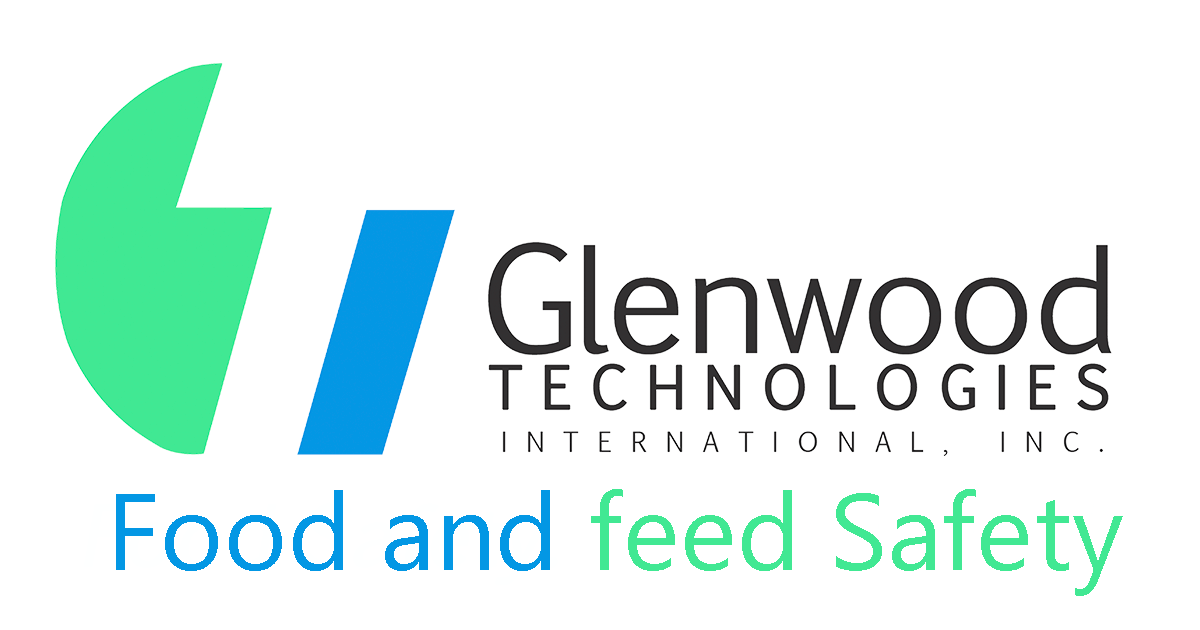April 25, 2024
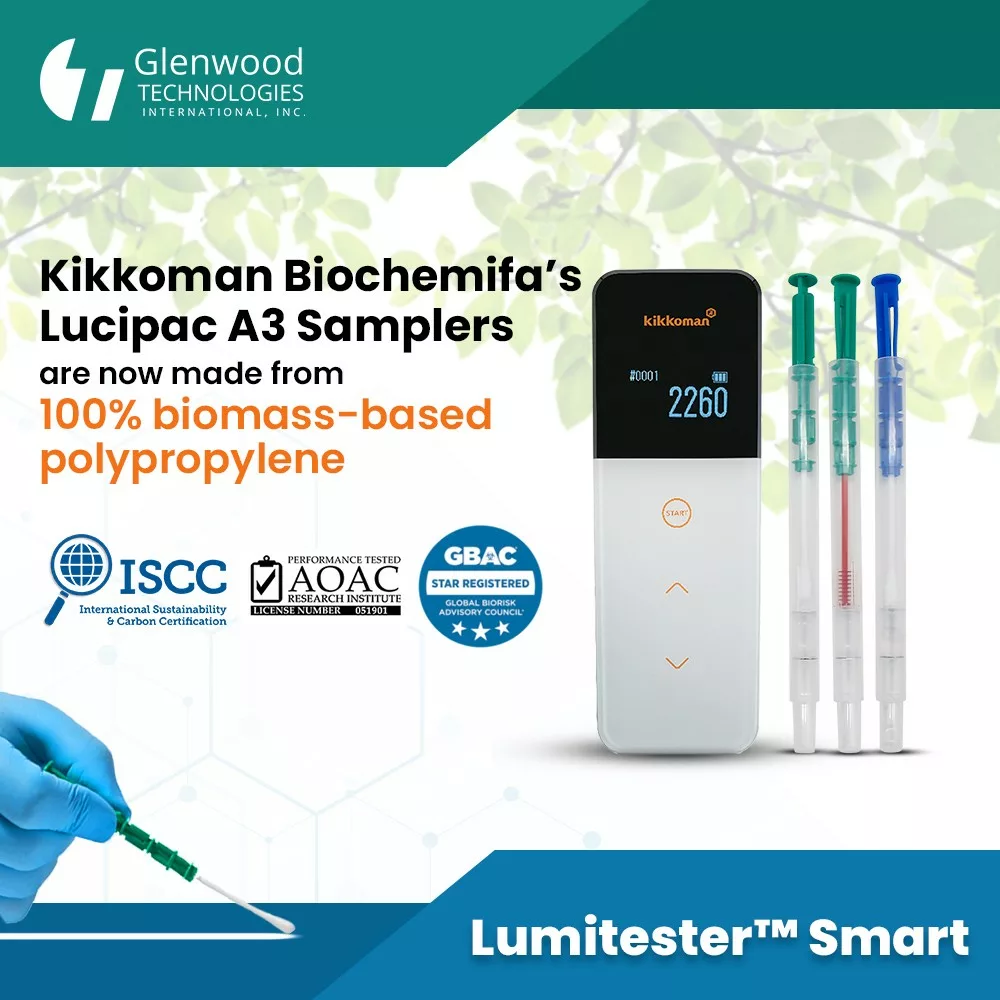
The Future of Hygiene and Sanitation Monitoring is Here: Sustainable and Technologically-Advanced LuciPac™ A3 Swabs
Kikkoman Biochemifa, a leading innovator in hygiene monitoring systems based in Japan, took a significant step towards environmental sustainability with the LuciPac™ A3 swabs. These swabs utilizing A3 Technology (ATP + ADP + AMP) are used in tandem with Lumitester™ Smart, which ensures highly accurate results and superior detection compared to other ATP-based hygiene and monitoring systems.
April 23, 2024
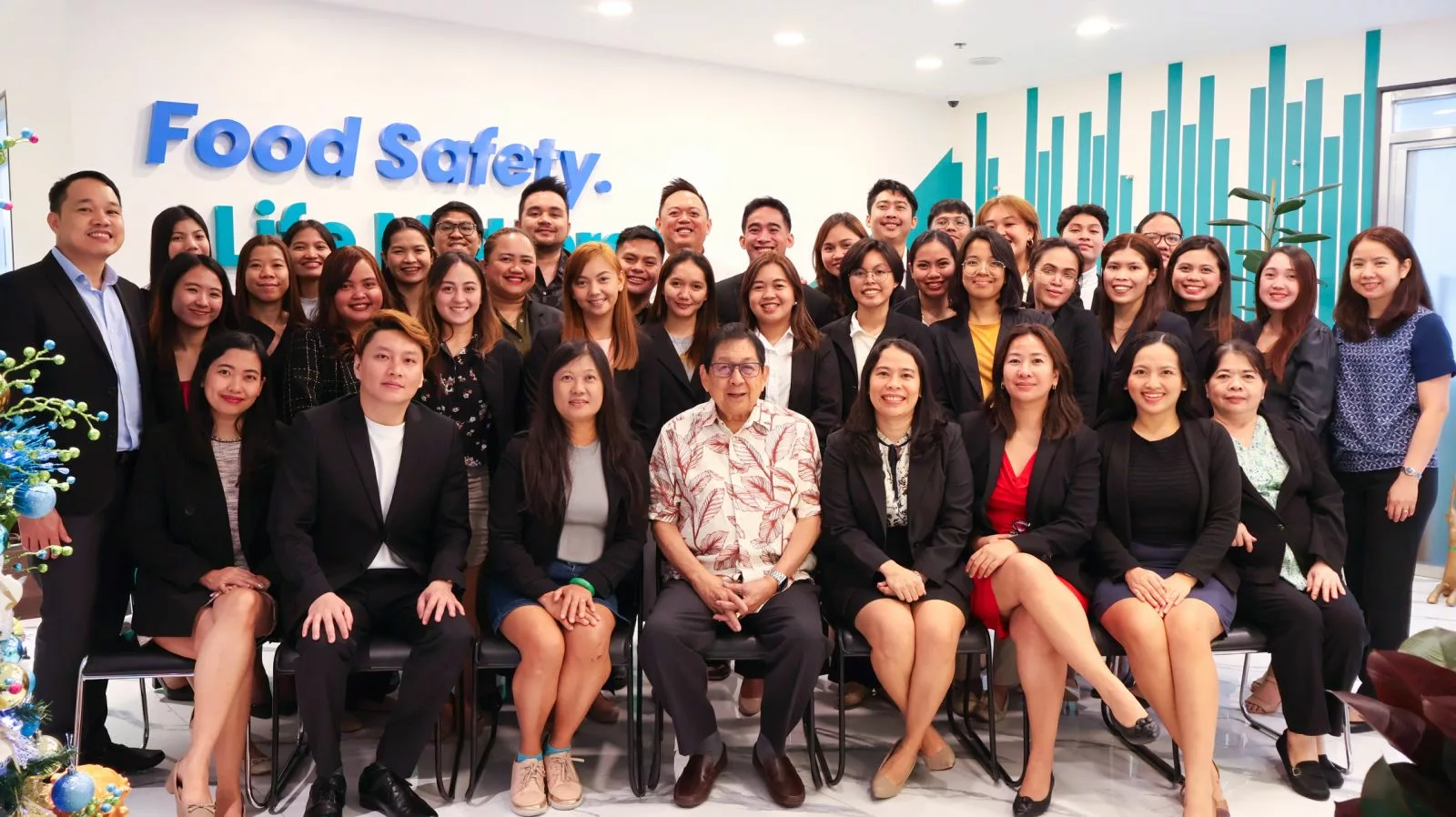
The Philippines' food and feed safety industry witnessed a significant development with the strategic and transformative partnership between Glenwood Technologies International Inc. and Romer Labs. This collaboration leverages Glenwood Technologies' 28 years of experience in distributing rapid diagnostic test kits in the Philippines and Romer Labs' 40+ years of expertise in food and feed safety testing.
March 18, 2024
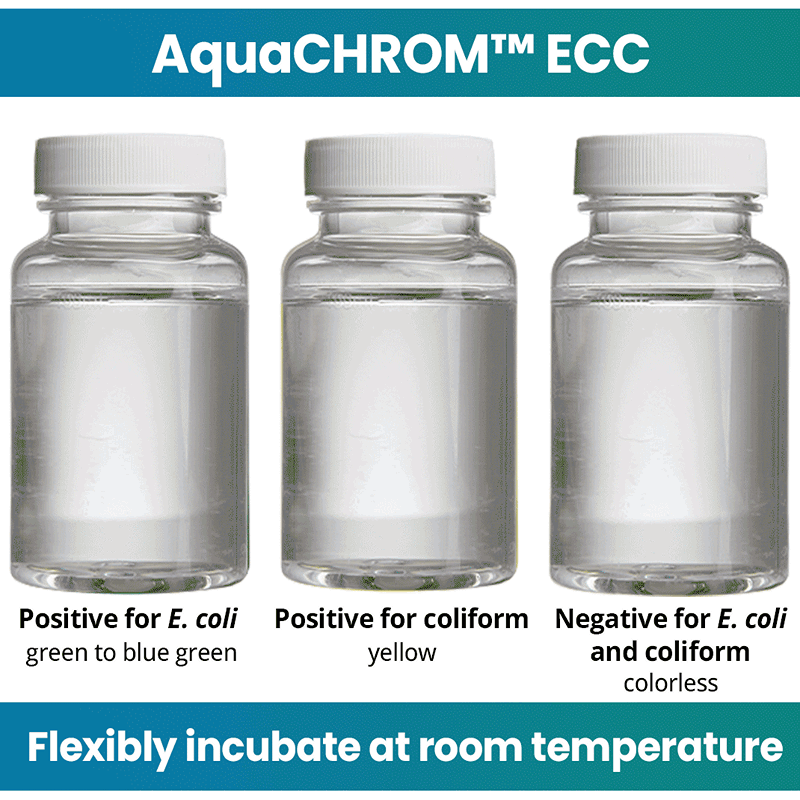
AquaCHROM™ ECC: Flexibly incubate samples at room temperature without the need for a UV lamp!
March 7, 2024
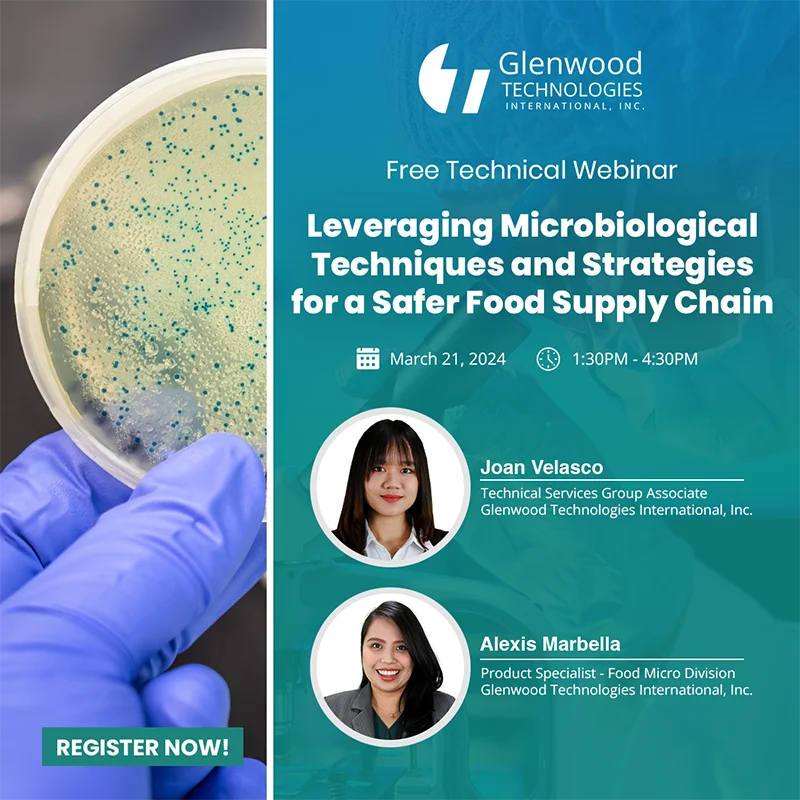
Leveraging Microbiological Techniques and Strategies for a Safer Food Supply Chain Technical Webinar
Leveraging Microbiological Techniques and Strategies for a Safer Food Supply Chain Technical Webinar
August 31, 2023
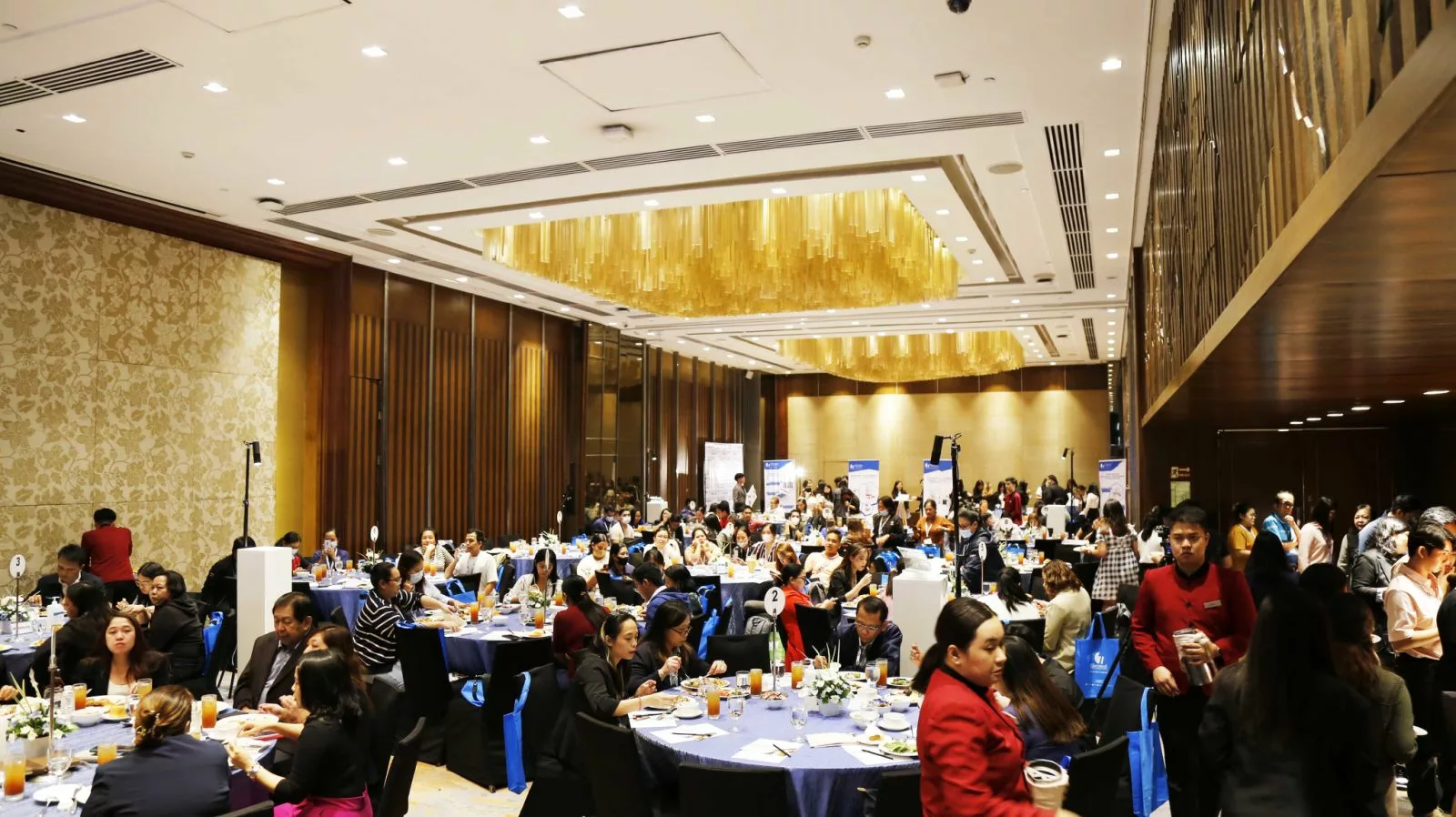
Glenwood Technologies International, Inc. (GTI), once again elevated the discourse on food and feed safety with its highly anticipated event, the Food Safety Summit 2023. Held on August 16th at the Marco Polo Hotel, this summit marked a significant convergence of experts and professionals from the food and feed industry, as well as government institutions. The summit's theme, "The Future of Food Safety: Trends, Technologies, and Transformation," was a testament to the industry's commitment to staying ahead of the curve. Presentations and discussions centered around cutting-edge technologies and emerging topics and trends in food and feed safety.
February 20, 2023

Watch the seventh episode of GLENWOOD BITES as we discussed the various implications of Climate Change on Food Safety.
January 20, 2023

Watch the sixth episode of GLENWOOD BITES as we discussed the causes, people at higher risk, and symptoms of food poisoning.
September 15, 2022

Watch the fifth episode of GLENWOOD BITES as we discussed the Food Safety Tips when eating Korean Barbecue.
August 12, 2022

Watch the fourth episode of GLENWOOD BITES as we discussed the Food Safety Tips for Street-vended Food.
July 22, 2022

Watch the third episode of GLENWOOD BITES as we highlighted the benefits of implementing an effective allergen control program in your facility.
Subscribe to our YouTube Channel: https://youtu.be/VpgFcP9vabg
January 7, 2022
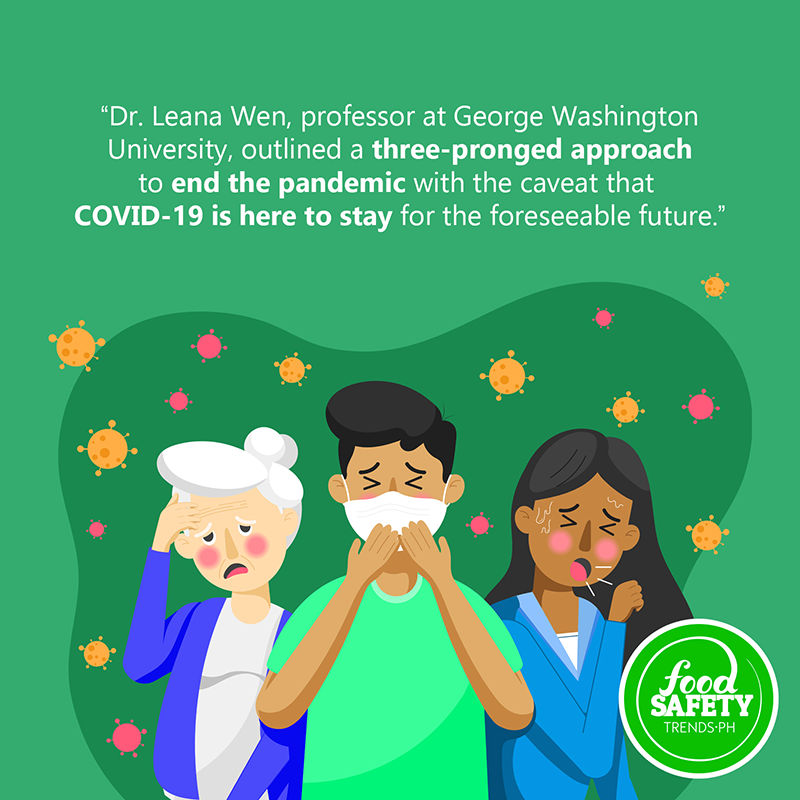
"With the pandemic waning in many countries, Dr. Leana Wen, professor at George Washington University, outlined a three-pronged approach to end the pandemic with the caveat that COVID-19 is here to stay for the foreseeable future. Increasing vaccination and maintaining mask mandates or continued recommendations to wear masks should be added to this sensible approach.
1. Making vaccines available for younger children
2. The need for oral outpatient treatment for COVID-19
3. The need for free or inexpensive readily available rapid tests"
September 2, 2021
Your journey towards being a food safety ambassador starts here! We are always on the lookout for career-driven, dedicated, and high potential talents. If you are
September 2, 2021
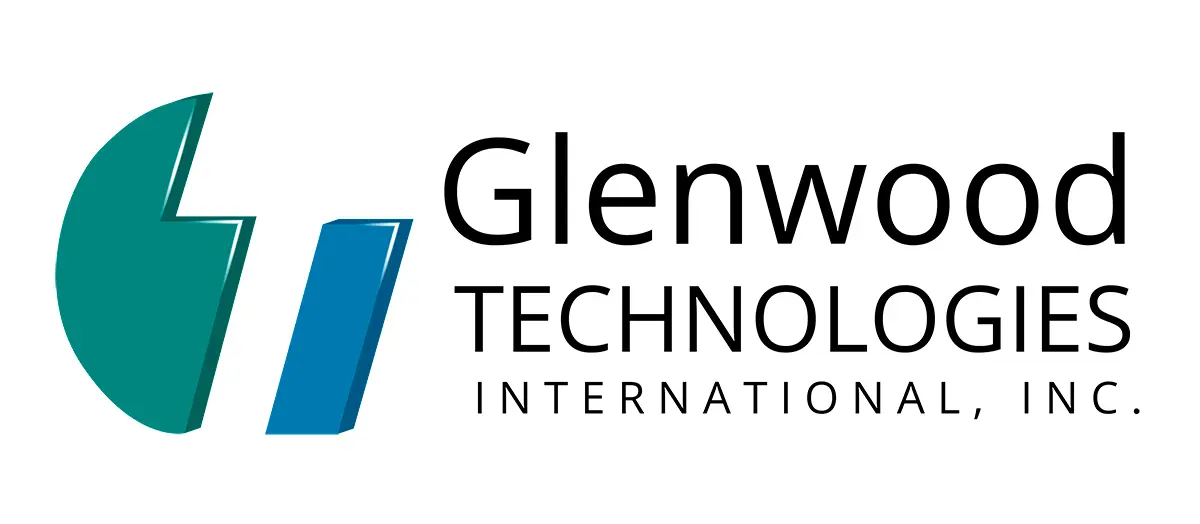
a leader in food safety testing solutions and rapid test kits in the philippines. exclusive distributor of neogen, ITS, glogerm, and biogal products. publisher of food safety trends philippines magazine
March 24, 2021
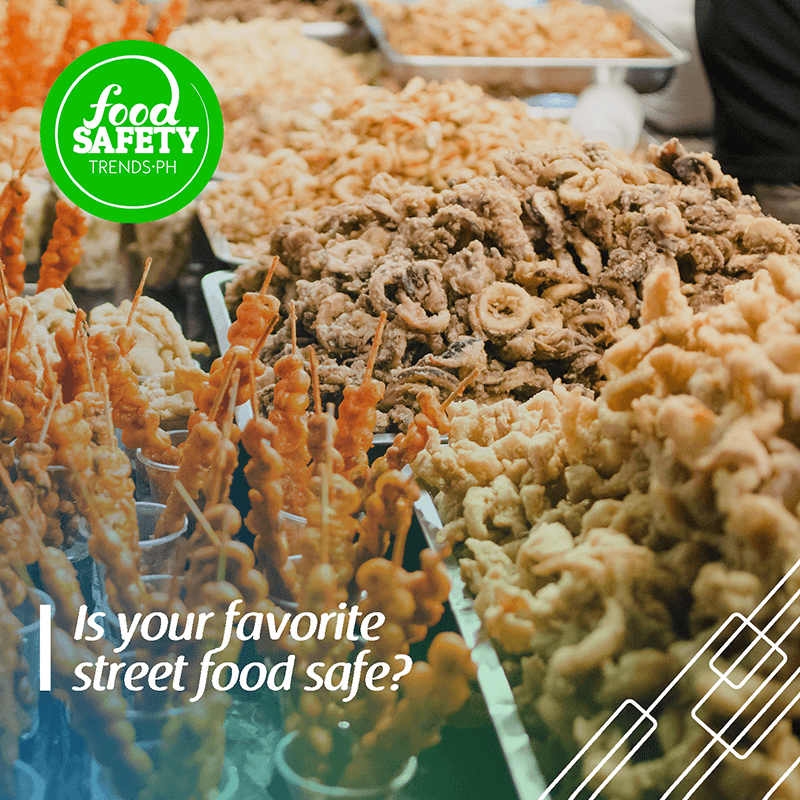
Is your favorite street food safe? Let's get something straight: WE LOVE STREET FOODS. People from all walks of life have a special love for street food because of its lip-smacking flavors. Certain Filipino street food favorites include kwek-kwek, barbeque, isaw, balut, green mango with bagoong, and mais, among others. These street foods can be found almost everywhere in the Philippines – around markets, schools, universities, factories, and even offices – they have easily blended into the urban scene, being very accessible to the majority of the Philippine population. It has been an integral part of the culture and the landscape of the Philippines.
March 22, 2021
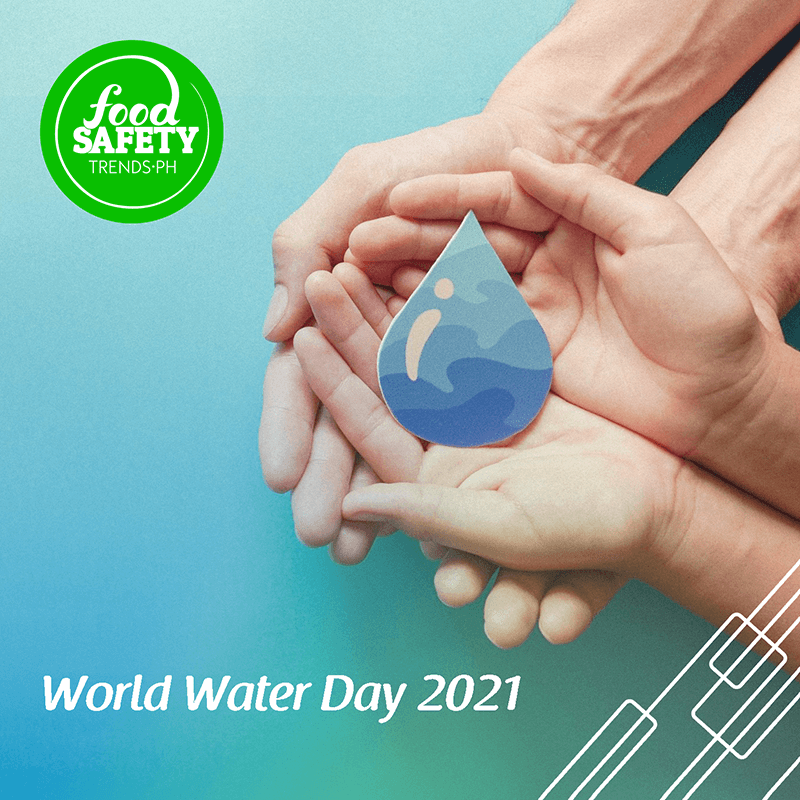
"Water is an essential building block of life. It is more than just essential to quench thirst or protect health; water is vital for creating jobs and supporting economic, social, and human development" - United Nations Educational, Scientific and Cultural Organization (UNESCO)
Held on March 22nd every year, World Water Day underlines the importance of fresh water. The event raises awareness of the 2.2 billion people living without access to safe water. It supports the United Nations' Sustainable Development Goal 6: water and sanitation for all by 2030.
July 27, 2020
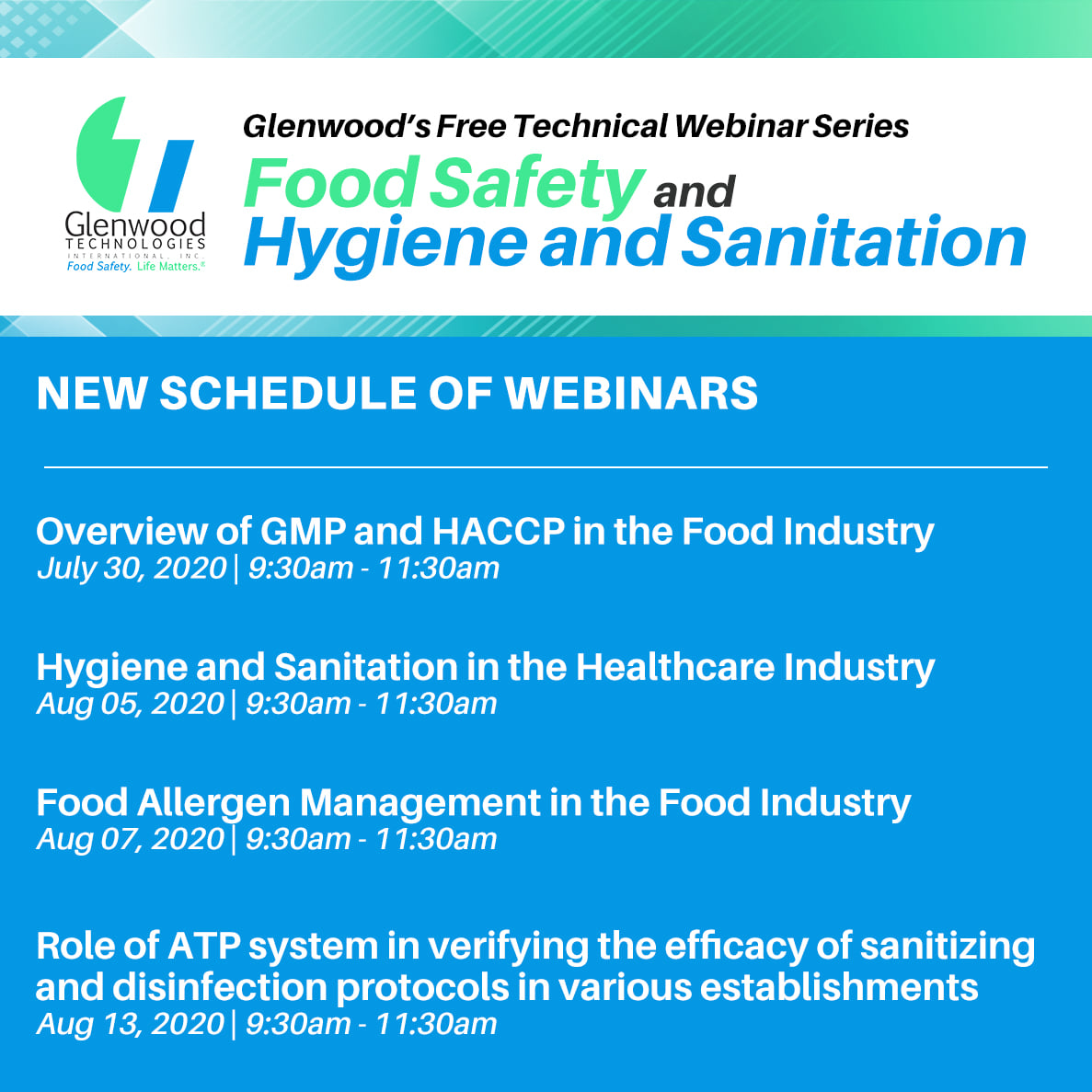
Thank you for your continuous support and participation in our Food Safety and Hygiene and Sanitation Webinar Series. Please be advised on the NEW SCHEDULE of our FOUR upcoming webinars. Register on this link
https://docs.google.com/forms/d/1STRe6NaPTaVFOU6ckuu1lN1g2cdJUUvnHOxTSG1g0SE/edit and wait for the confirmation e-mail on how to access the webinar.
July 10, 2020
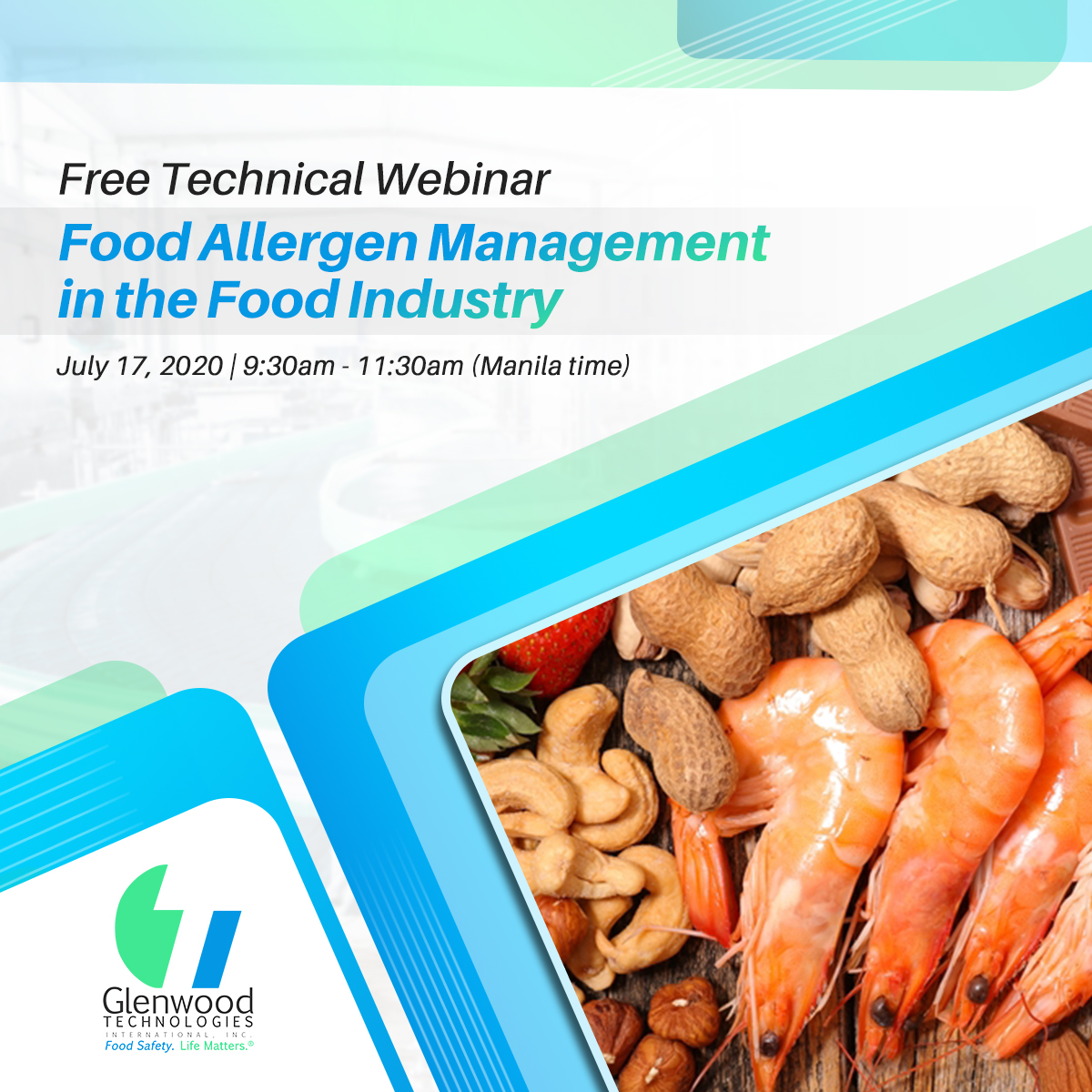
Food allergens are now recognized as a major food safety concern, the management of which should be a shared responsibility between consumers, government, and food manufacturers. Know more on how to implement an allergen management program in your facility and be compliant with the existing local and international regulations. Come and join us on our "Food Allergen Management in the Food Industry" webinar!
March 31, 2020
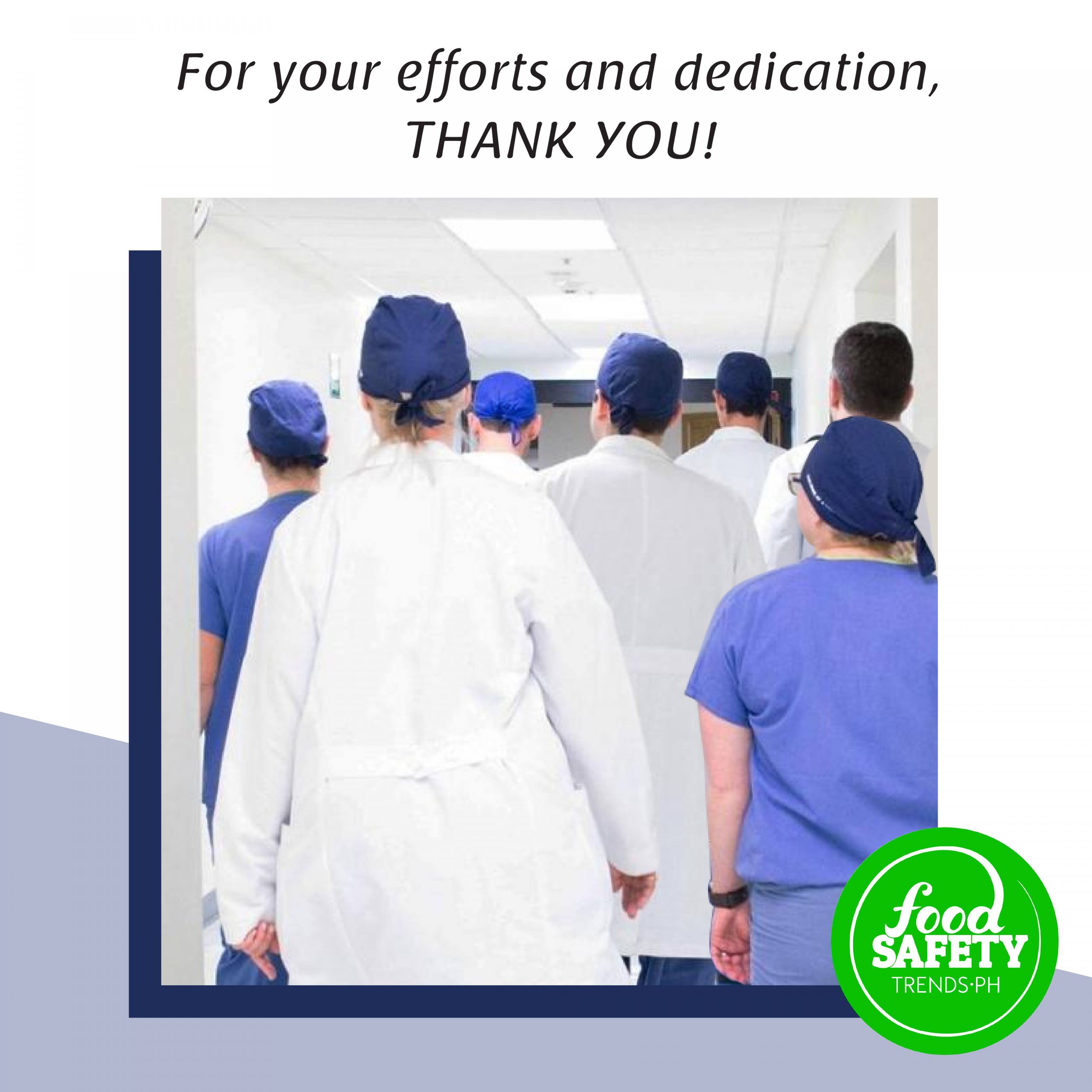
Food Safety Trends PH is one with the nation in thanking our frontliners who continue with the battle to fight COVID-19. Our deepest gratitude to our healthcare workers, the public and law enforcers, emergency responders, city and barangay employees, researchers and scientists, cashiers and supermarket attendants, janitorial team, and other frontliners who are tirelessly serving the community. Thank you for your enormous sacrifices. Your hard work and dedication are very much appreciated.
March 31, 2020
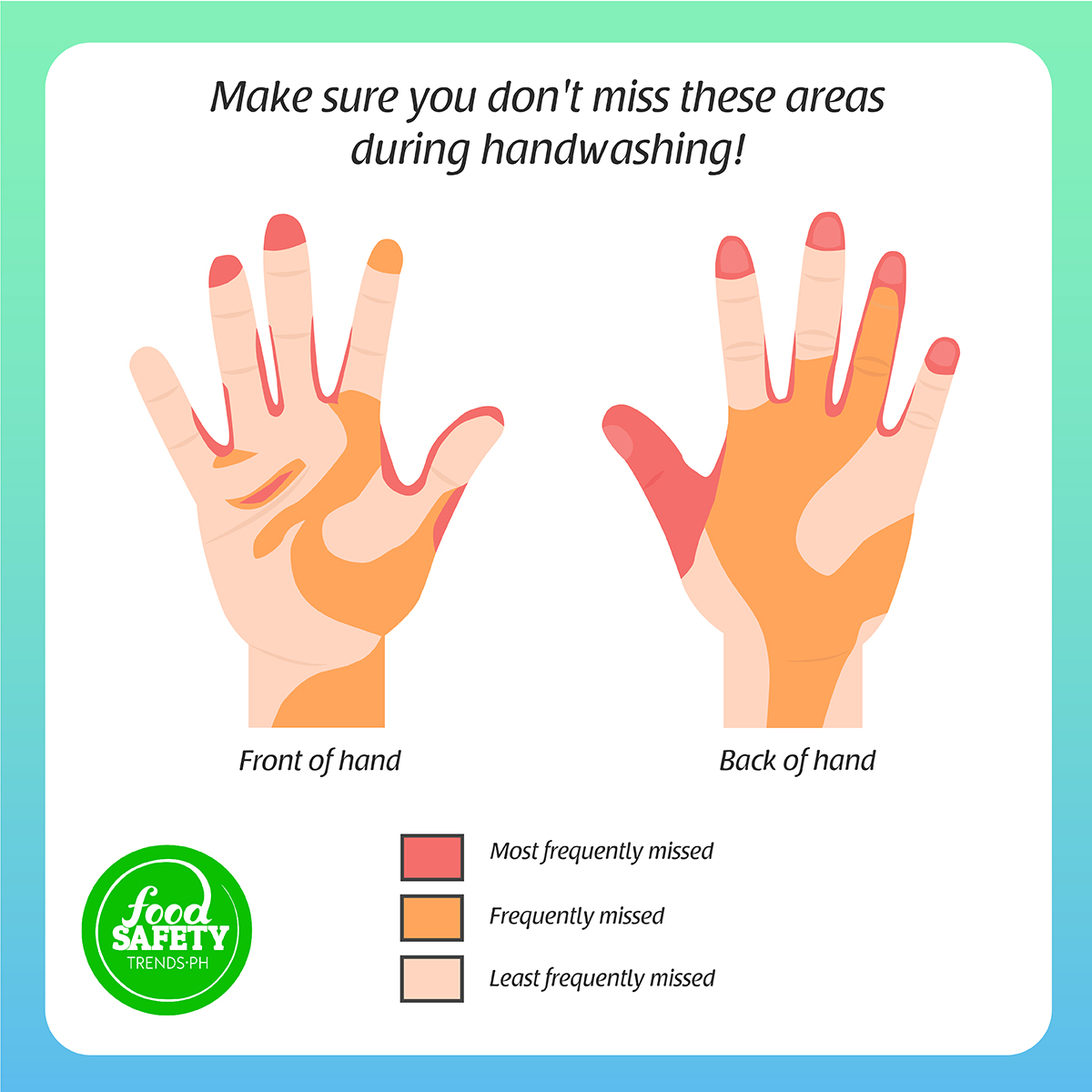
As COVID-19 cases around the world continue to increase, millions of lives become more at risk. We owe it to all healthcare workers and front-liners who are currently helping in the COVID-19 situation to safeguard ourselves by staying in our respective homes and, more importantly, by observing proper and frequent handwashing.
March 24, 2020
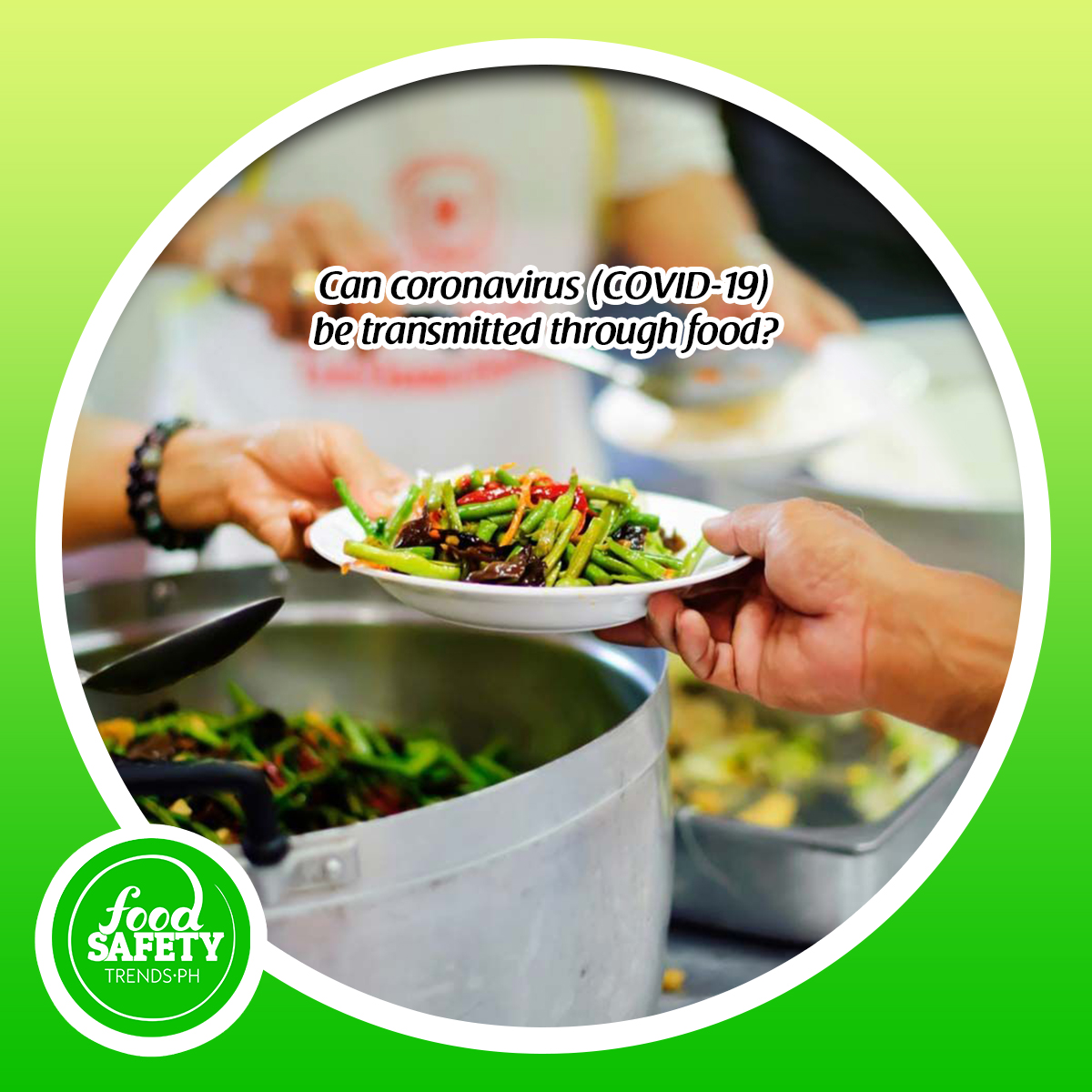
Coronavirus (COVID-19) is generally thought to be spread from person to person through respiratory droplets. According to the World Health Organization (WHO) and the US Centers for Disease Control and Prevention (CDC), there is currently no evidence that the virus can be transmitted through food or food packaging.
February 4, 2020
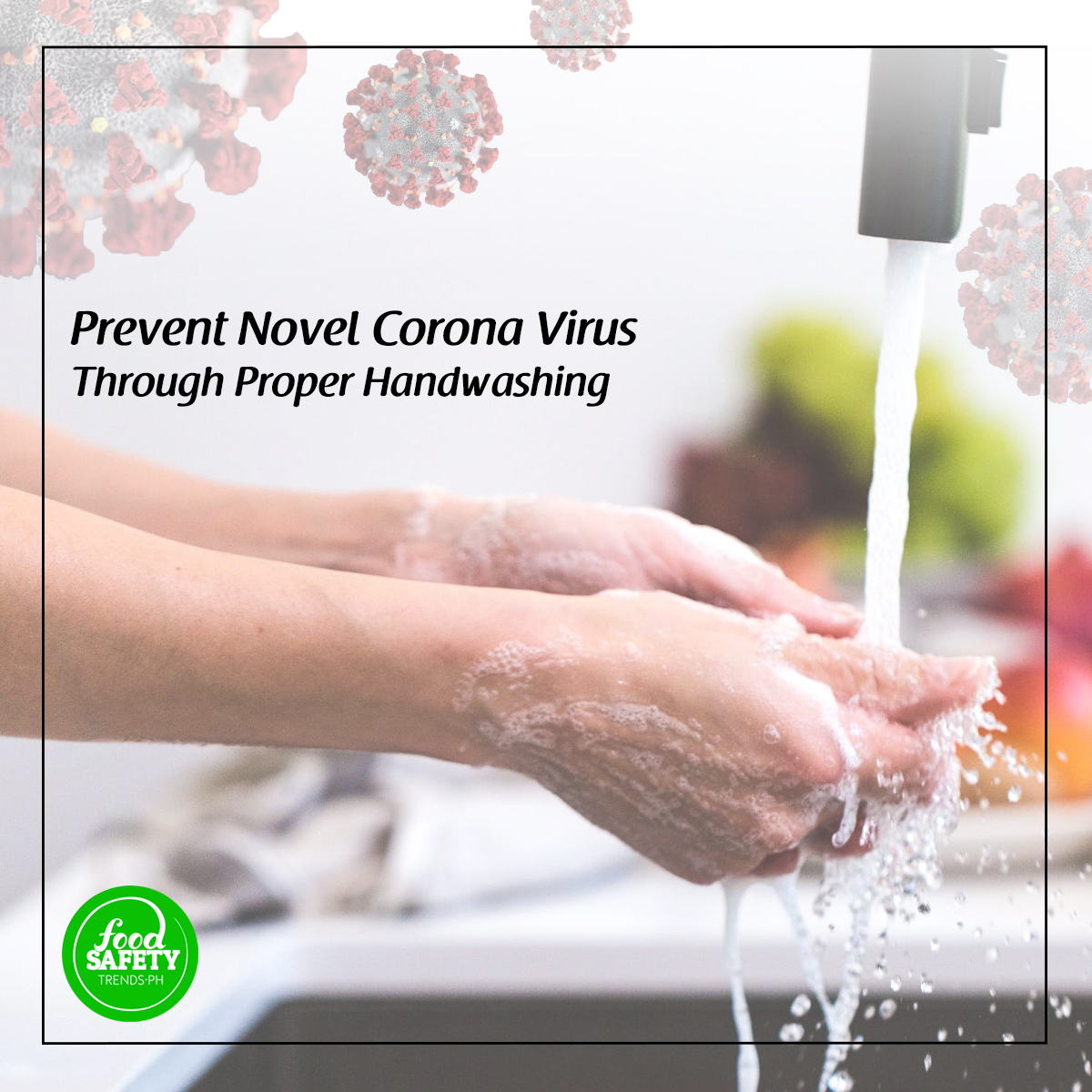
First things first: Wash your hands properly! The Global Community is now working together to prevent the further spread of the novel Coronavirus (2019-nCoV) which is now considered an international health crisis. Scientists and researchers in different countries are also making progress in the creation of possible cure and vaccine for the virus.
July 31, 2019

Worrying that your furry friend may be suffering from Ehrilichiosis? Visit your veterinarian and ask for ImmunoComb® today!
July 15, 2019

Did you know that at least 2 billion people, globally, drink water coming from sources that have fecal contamination? According to the World Health Organization, contaminated water can cause diseases such as diarrhea, cholera, dysentery, typhoid, and polio. It is also the cause of an estimated 485,000 diarrheal deaths each year.
February 4, 2019
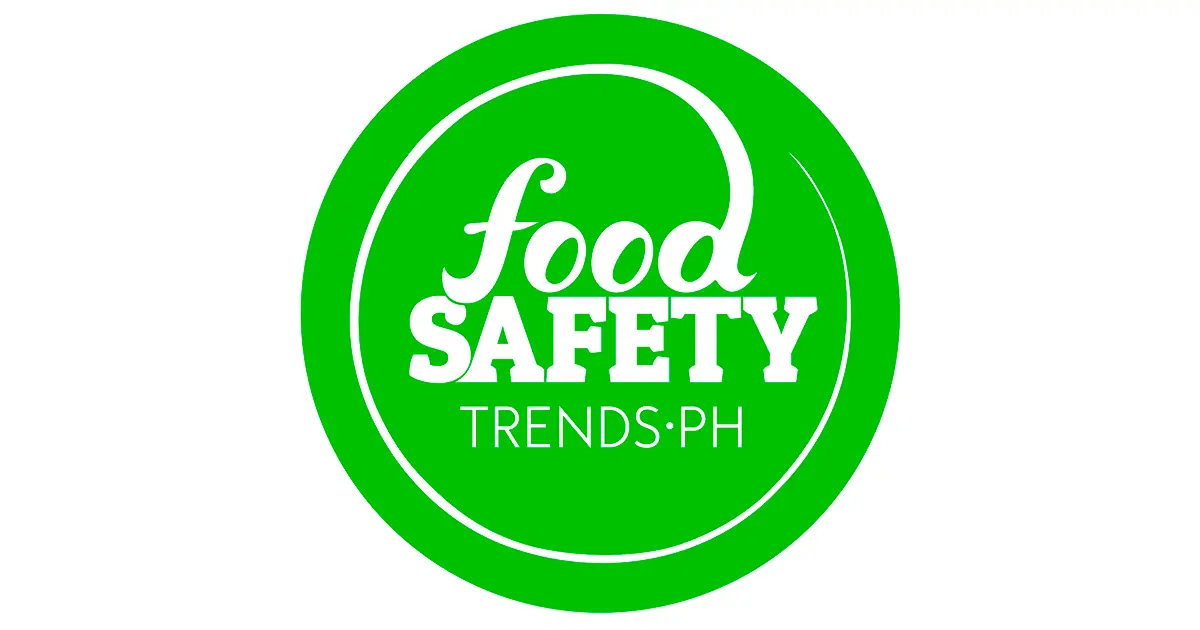
In line with our advocacy, we came up with Food Safety Trends Philippines, the very first magazine on food safety and quality awareness from farm to table which focuses on the Philippine setting. Together with the help of notable food safety experts and ambassadors across the globe, the magazine was tailored to address the food safety concerns encountered by the Philippine food industry. We are hopeful that, in our modest way, Food Safety Trends Philippines will contribute to the greater recognition of the Philippine approach to uplift our food safety enhancement systems.
June 13, 2018
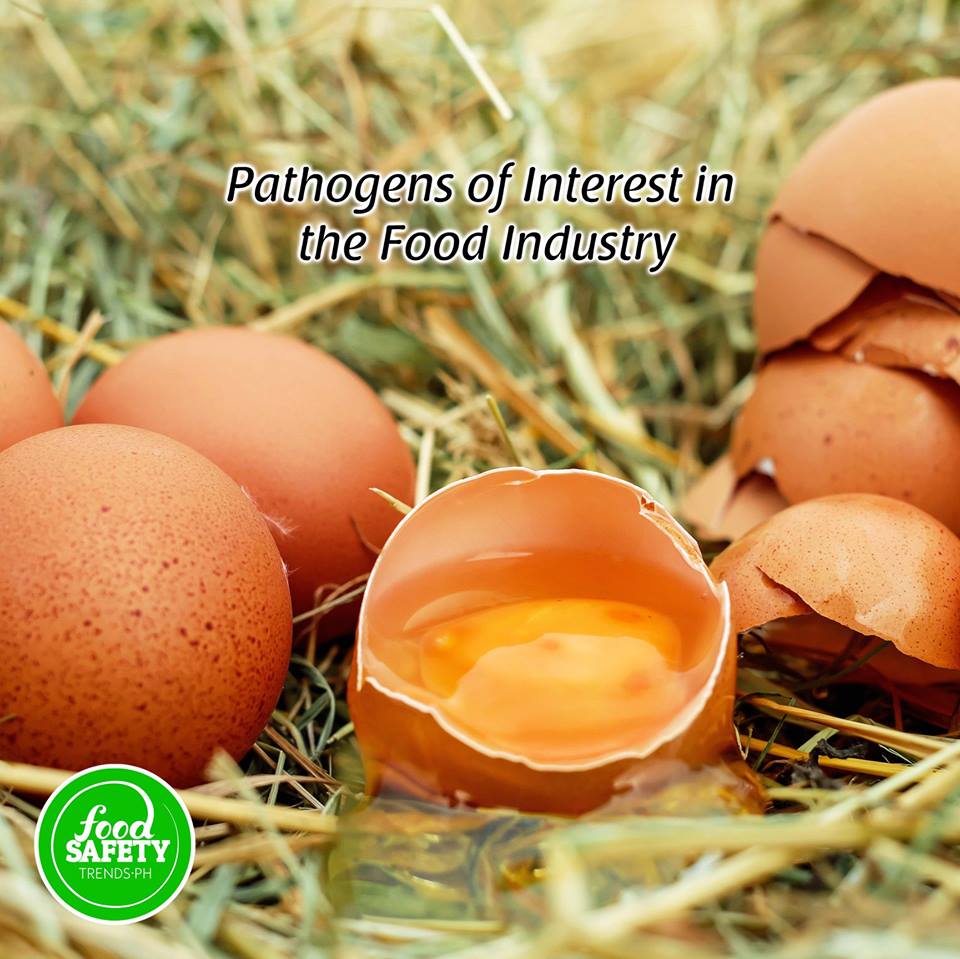
Food safety is non-negotiable. The continuous urbanization and modernization of our country had brought major transformations in food manufacturing, processing, transporting, retailing, and even consumption.
May 29, 2018

The Sanitary Design of a facility or an equipment is heavily oriented towards the avoidance of microbiological contamination and colonization, much like the goals of HACCP.
April 23, 2018
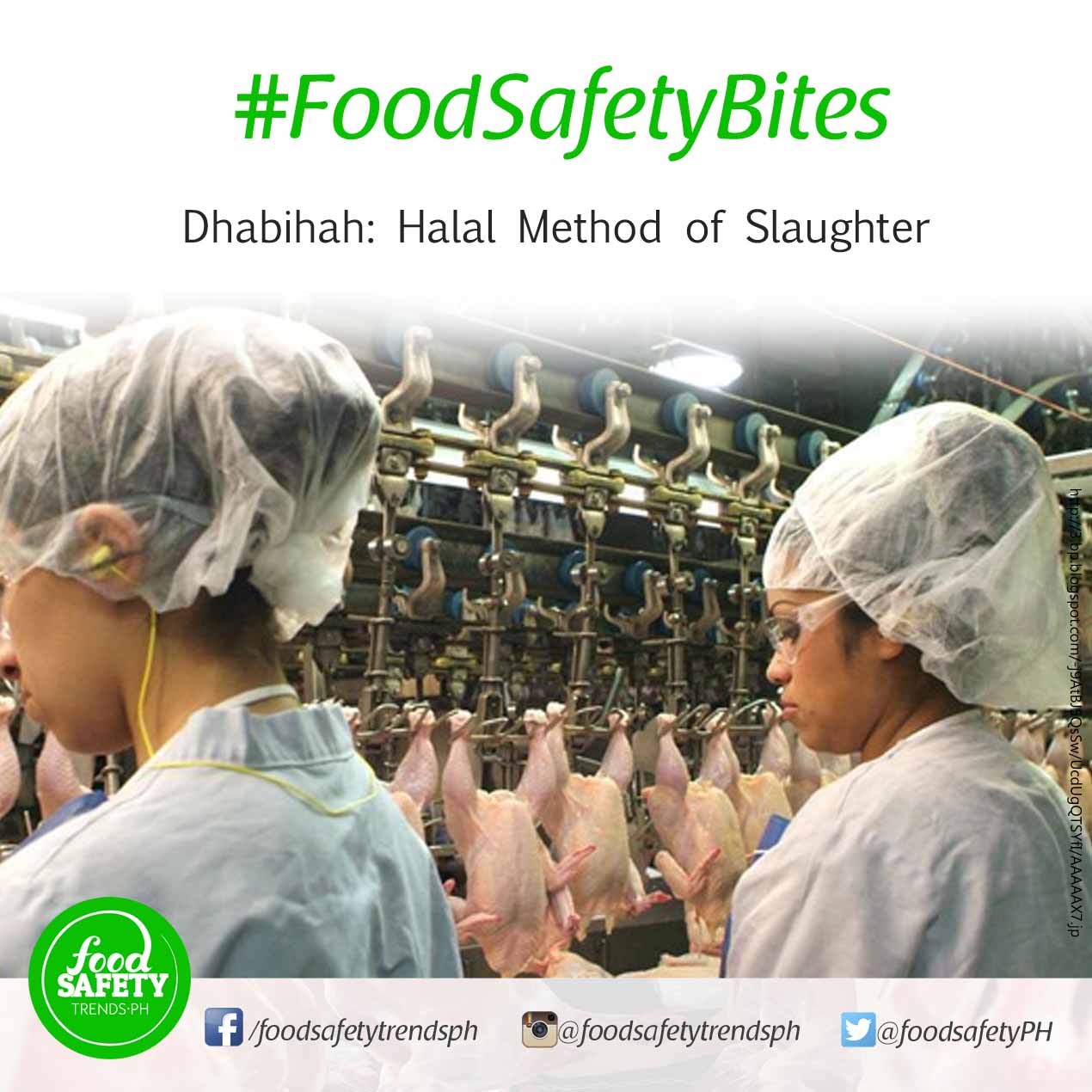
For a meat to be halal, animals must be alive and healthy, and has to be slaughtered by a Muslim in a ritual way known as “Dhabihah”. Animals should be slaughtered by slitting its throat quickly with a very sharp knife; and the trachea, esophagus, jugular veins, and carotid arteries should be cut swiftly to prevent the animal from suffering.
April 13, 2018
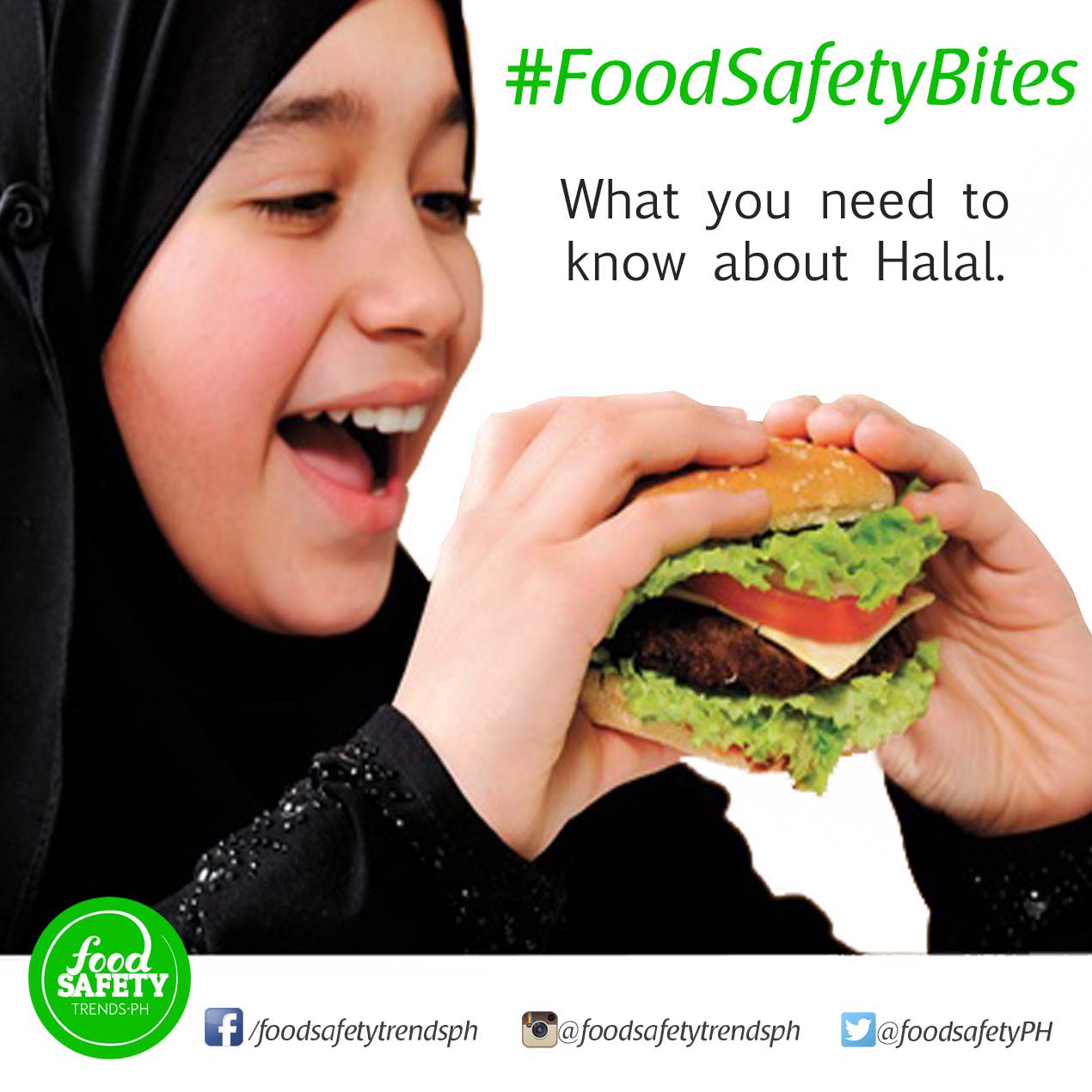
Halal is often used in reference to food and drinks that are permissible for Muslims to eat or drink under Islamic law. Muslims are not allowed to consume blood, alcohol, pork and by-products, as well as improperly slaughtered animals.
April 12, 2018
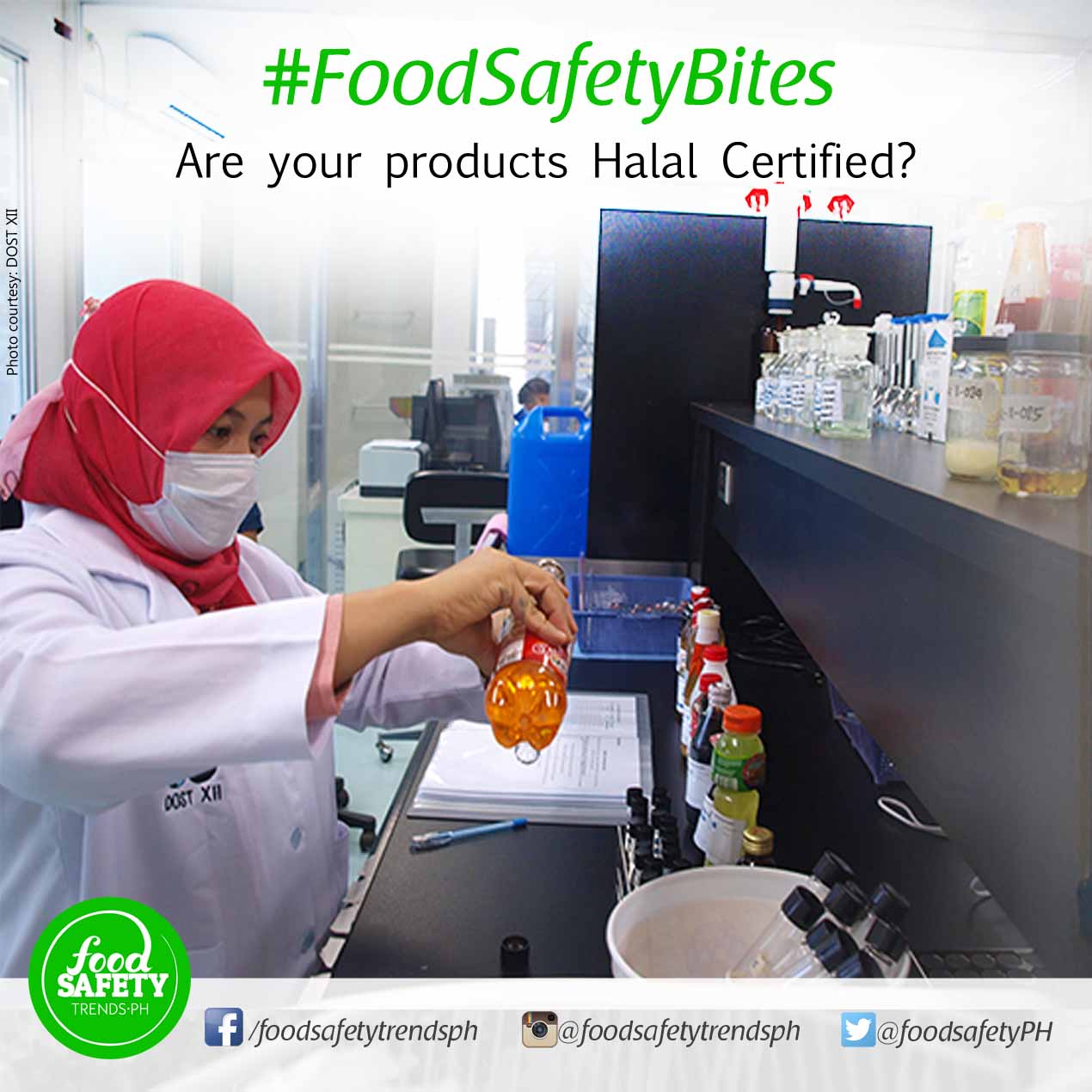
With 1.6 billion consumers worldwide, the Halal market continues to be a growing industry. To access this market, Philippine businesses secure Halal certification for their products to comply with the religious requirements observed by Muslims.
April 10, 2018

The development of Halal industry is a collaboration of the private and government sector wherein the Department of Trade and Industry works on trade laws and export, the Department of Agriculture for feed safety and production of Halal raw materials, and the National Commission of Muslim Filipinos for culture and religious implications of Halal just to name a few.
April 6, 2018
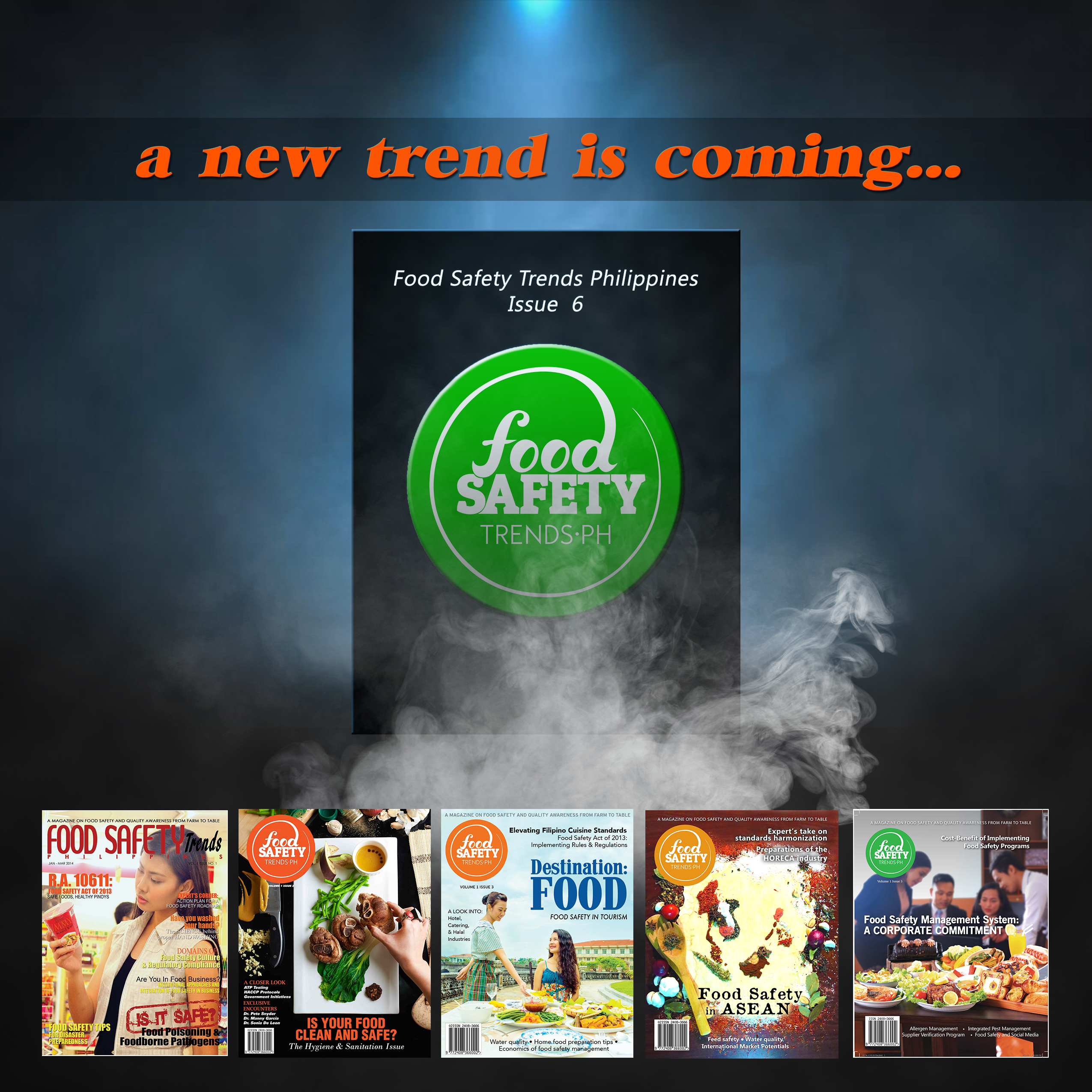
Be the first to get the new issue of Food Safety Trends Philippines Magazine! Be informed on the various trends and updates on food safety and quality awareness.
April 5, 2018
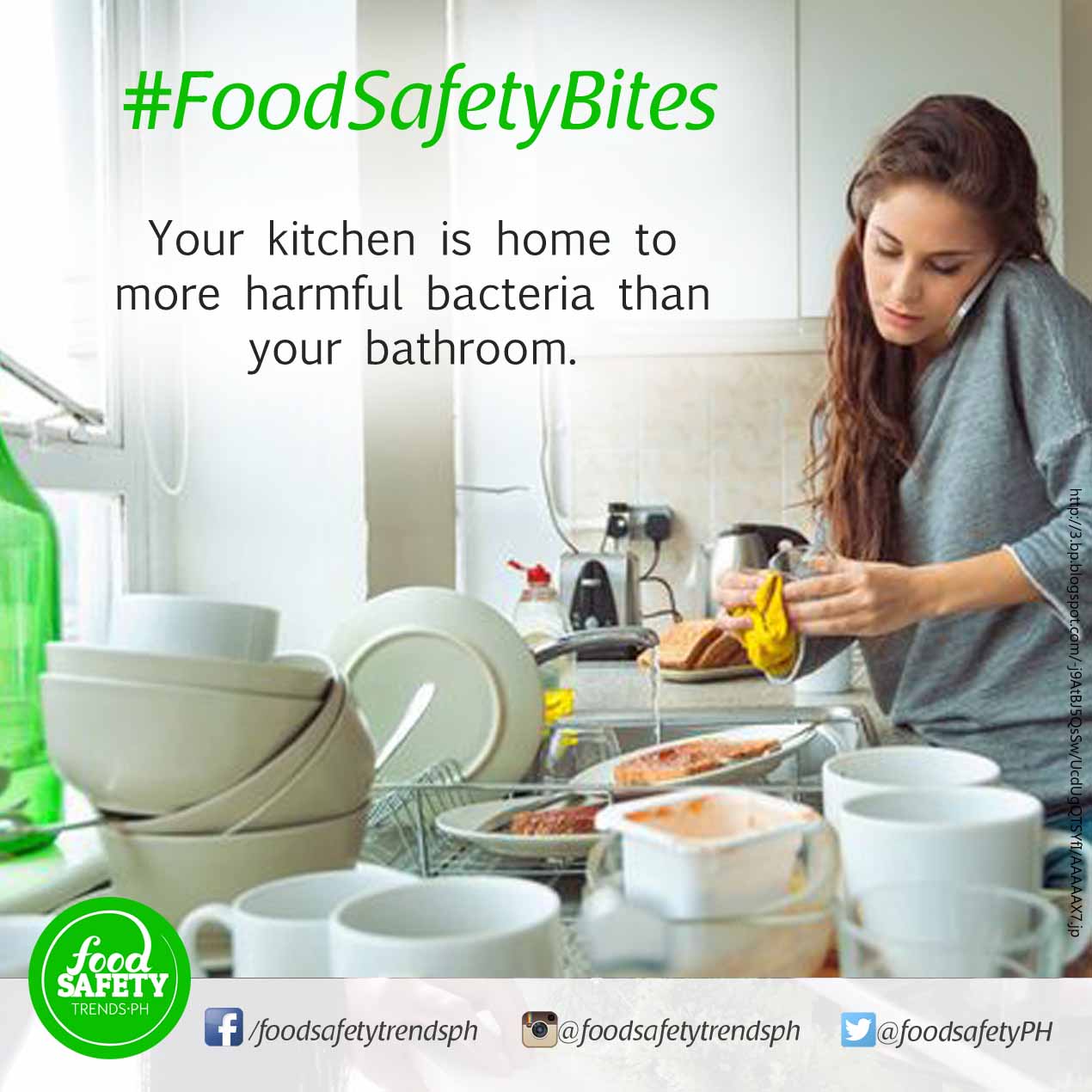
People disinfect their toilet seats all the time, but they don’t realize that they really need to pay attention to their kitchen too. According to Dr. Charles Gerba, a microbiologist and professor at the University of Arizona in Tucson, there are 200 times more fecal bacteria on the average cutting board in a home than a toilet seat.
April 3, 2018
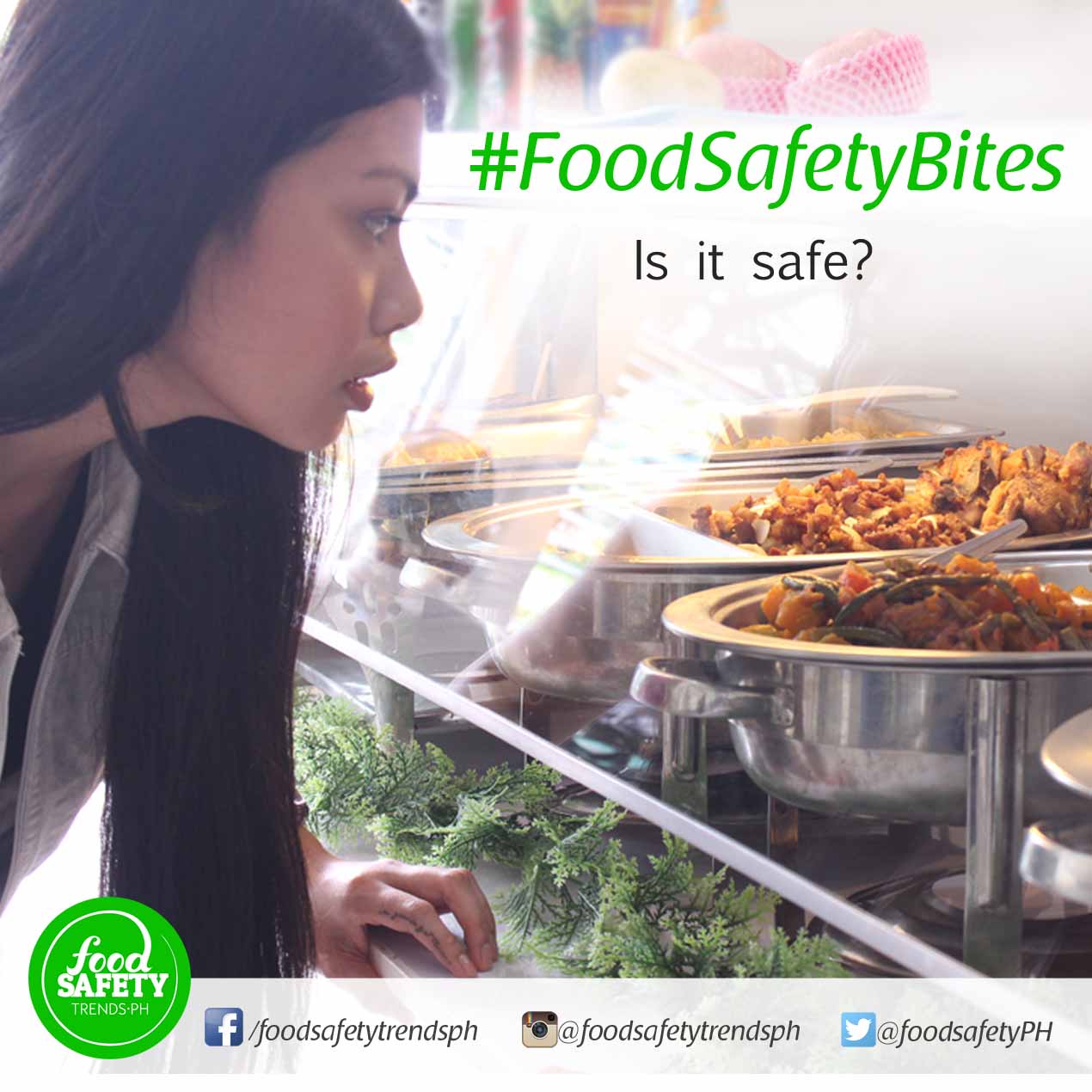
According to the US Centers for Disease Control and Prevention (CDC), the most common bacteria that cause food poisoning are Salmonella, Clostridium perfringens, and Campylobacter.
March 22, 2018
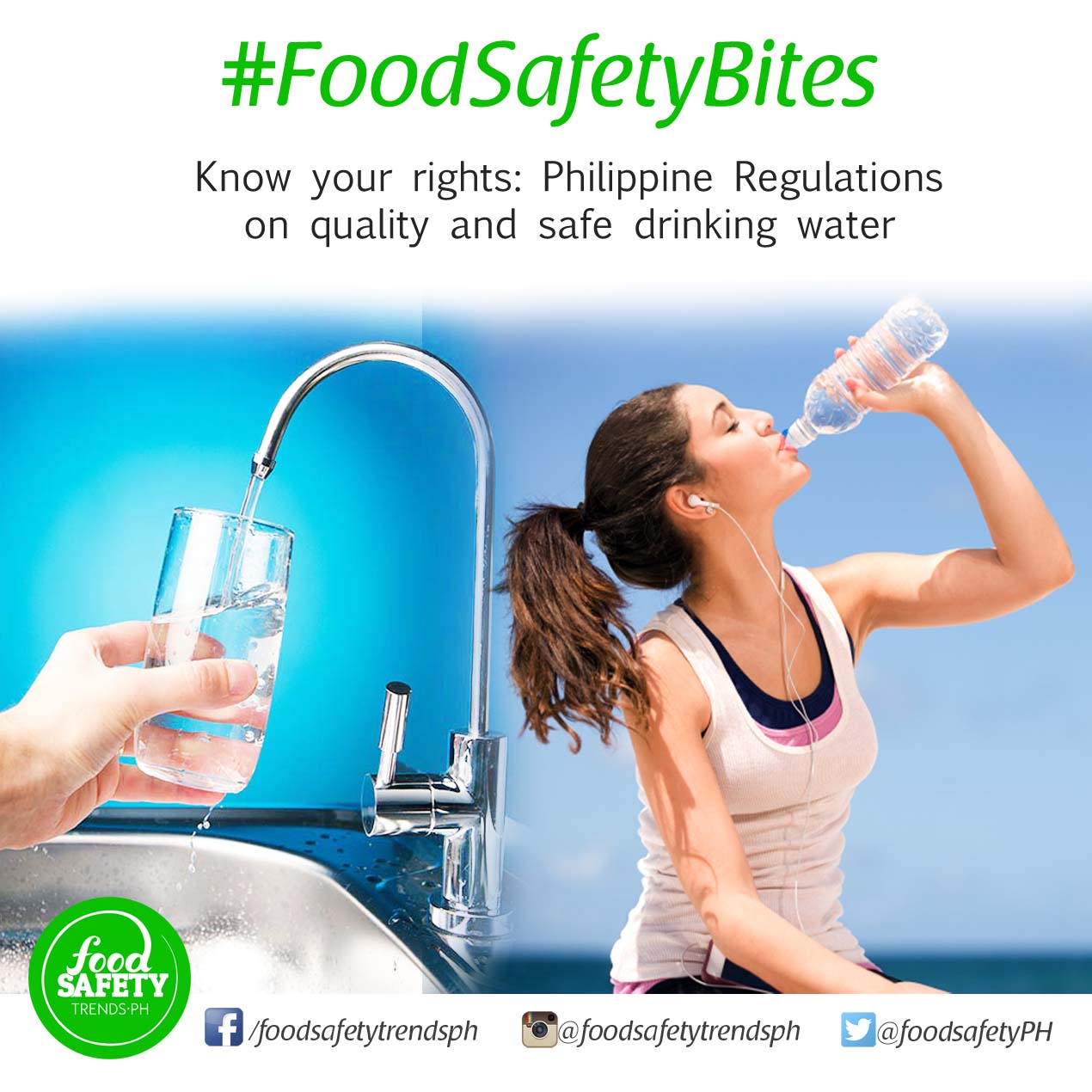
In the Philippines, two separate Administrative Orders govern different types of drinking water sources
March 21, 2018
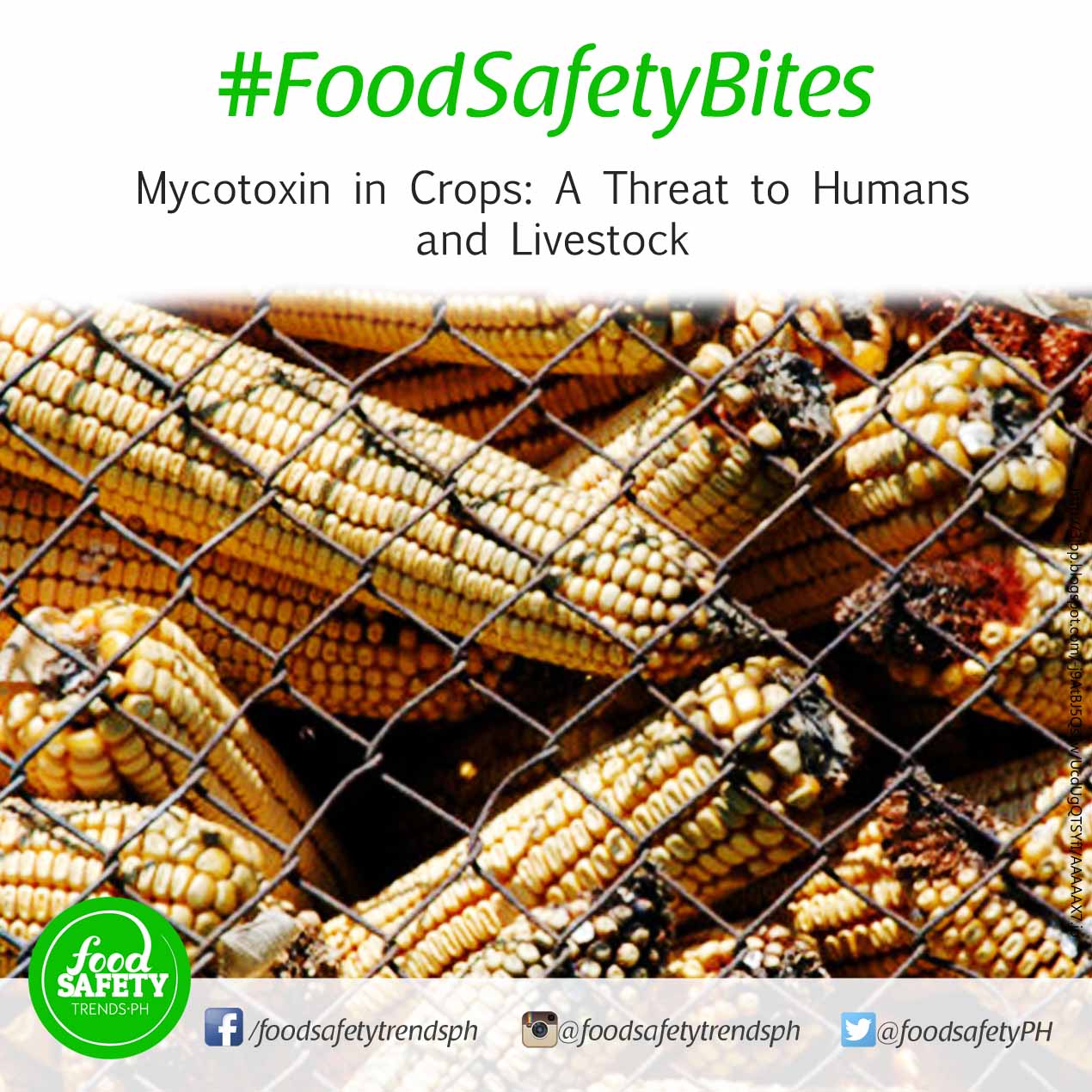
Mycotoxin contamination is a significant food safety concern in the grain industry. Consumption of mycotoxin-contaminated commodities can lead to acute and chronic diseases in humans and animals.
November 8, 2017
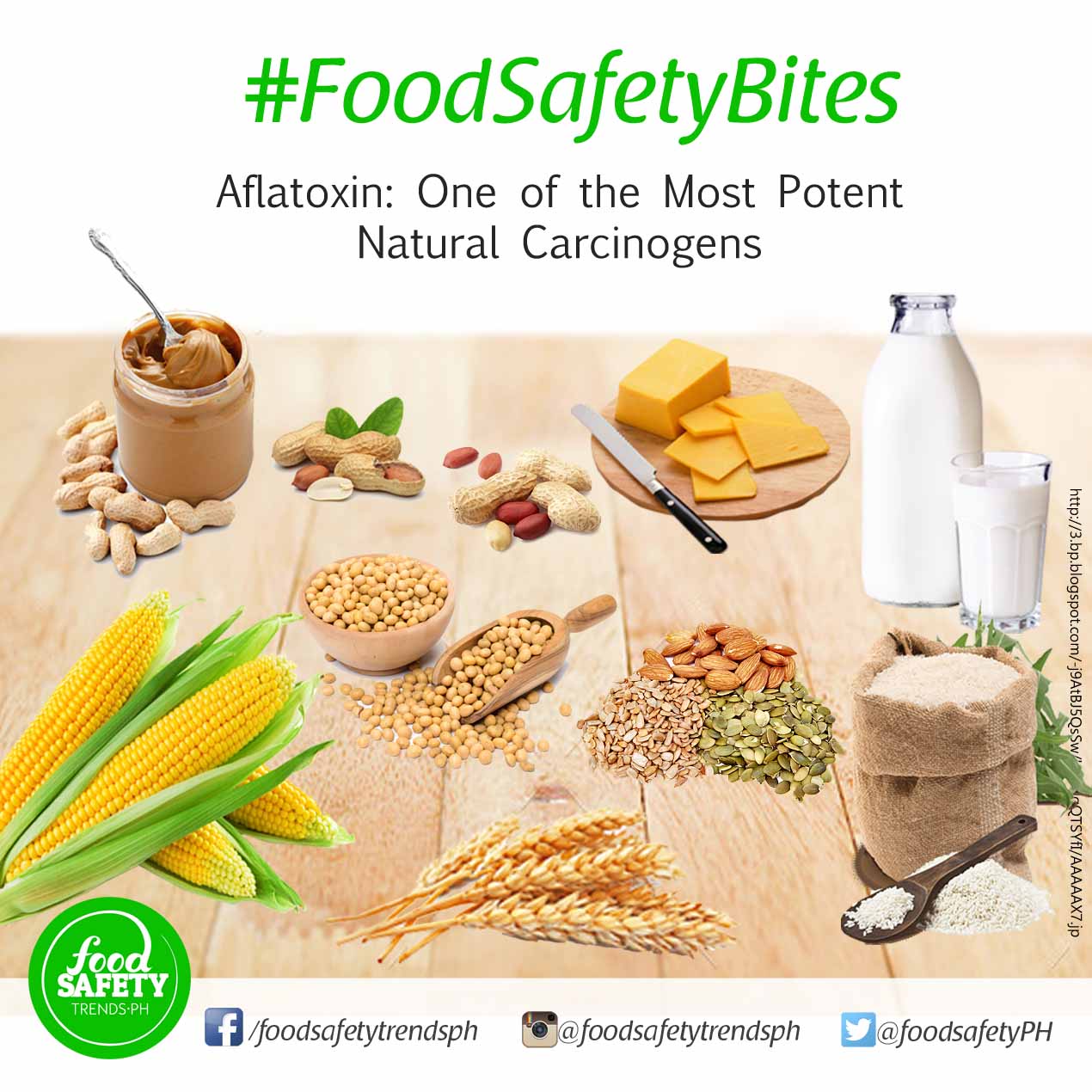
Aflatoxin is one of the most potent natural carcinogens known to man and has been linked to a wide variety of human and animal health problems.
November 6, 2017
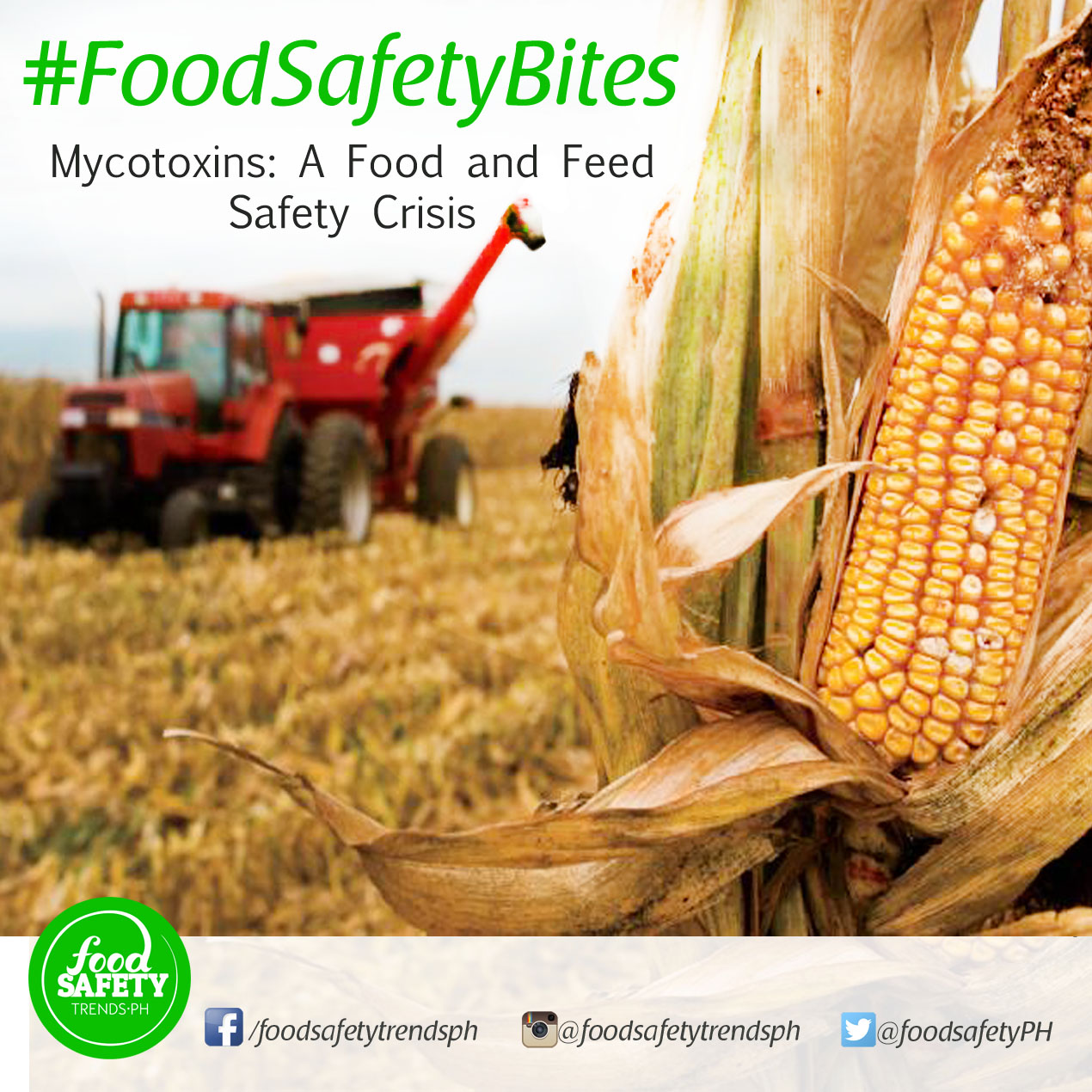
Mycotoxins are toxic substances produced by certain molds that contaminate various agricultural commodities pre or post-harvest. According to Food and Agriculture Organization (FAO), international trade in agricultural commodities such as wheat, rice, barley, corn, sorghum, soybeans, groundnuts, and oilseeds amounts to hundred million tons each year.
November 3, 2017
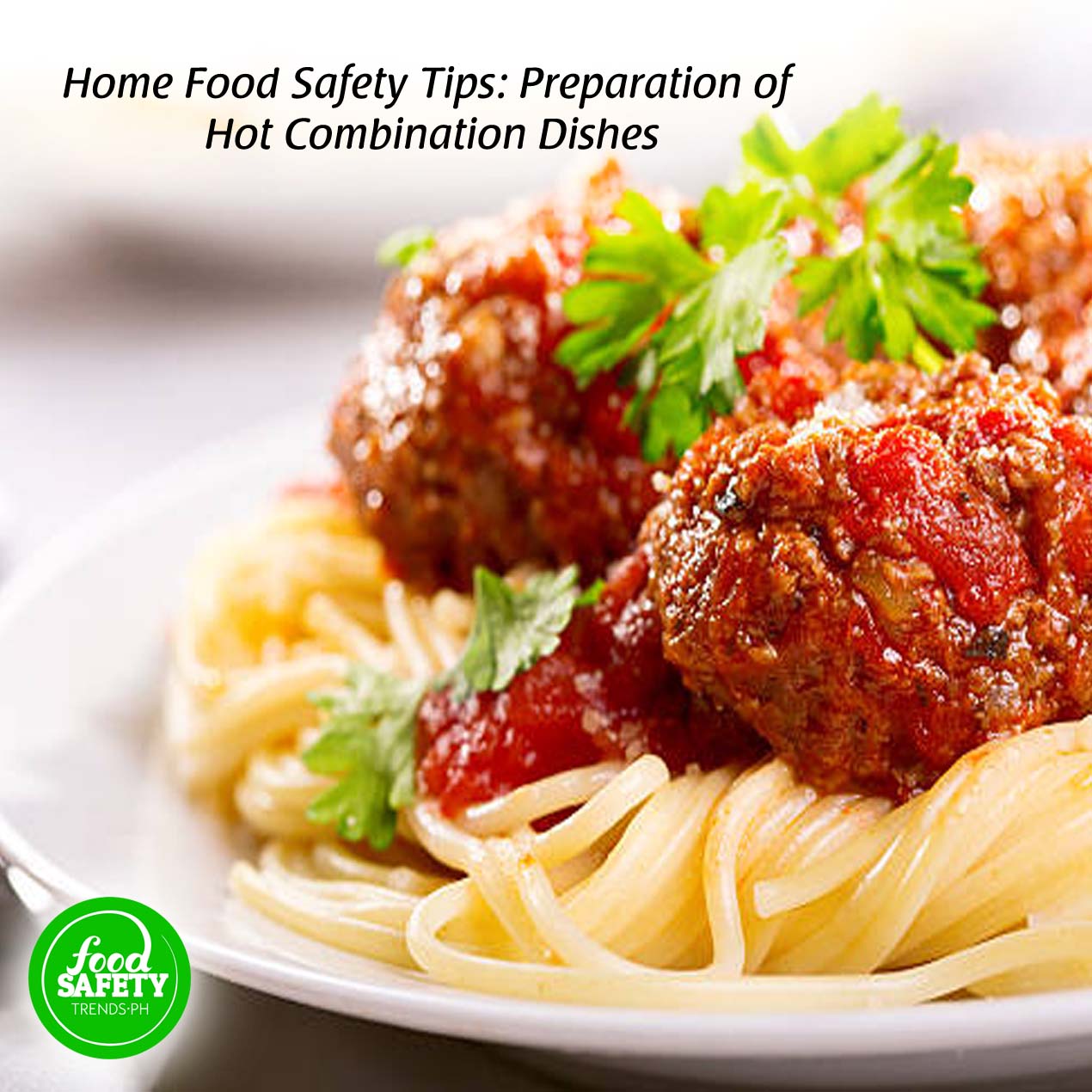
Follow these food safety tips in preparing hot combination dishes
November 2, 2017
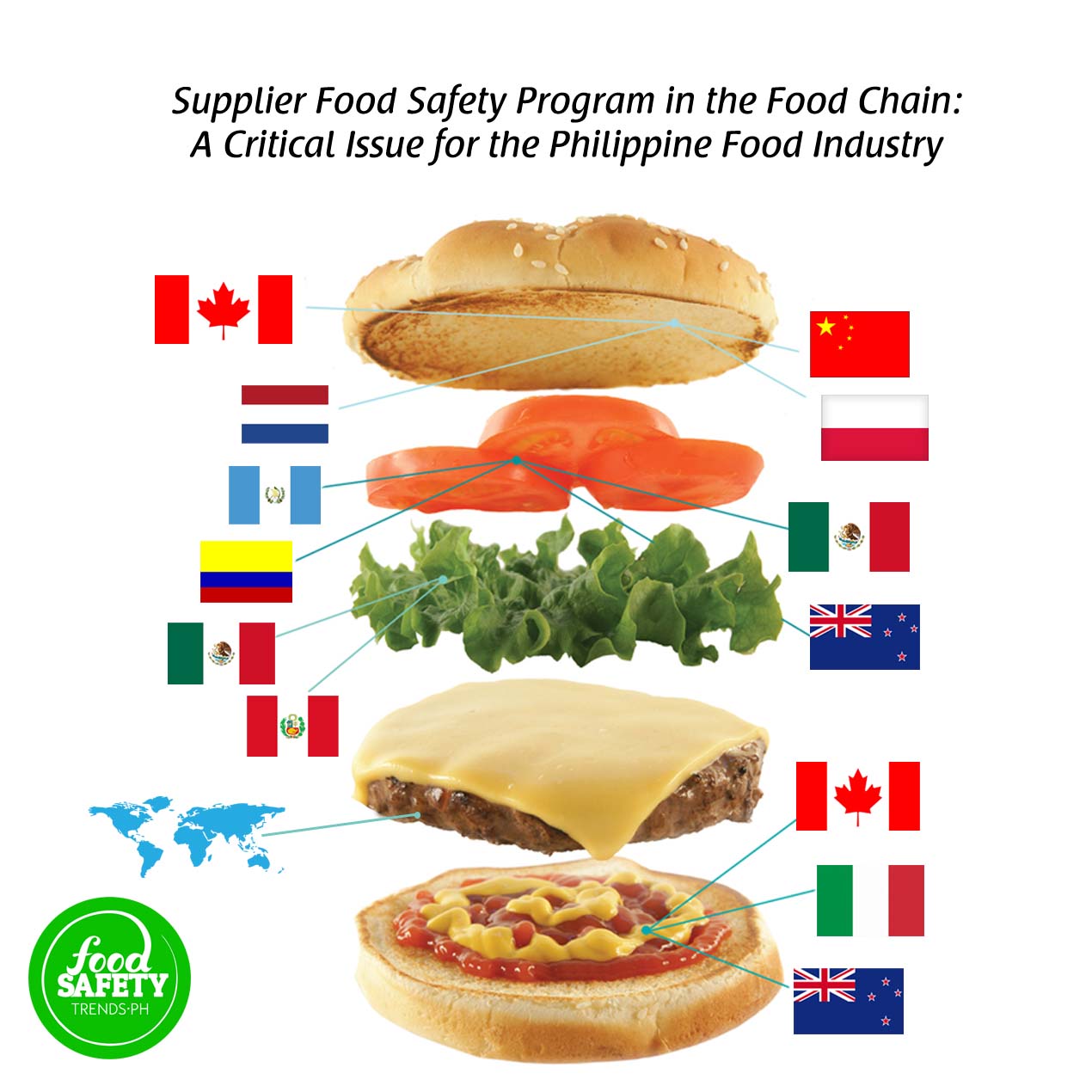
Since the acceptance of the farm-to-table concept in food safety systems, the importance of upstream sources in food manufacturing has become the recent focus in global trade. Keeping food safe as it travels along the food chain seamlessly is complicated. It is aggravated by global trade, which allows opportunities for spreading or transmitting an ever growing list of foodborne hazards.
October 23, 2017
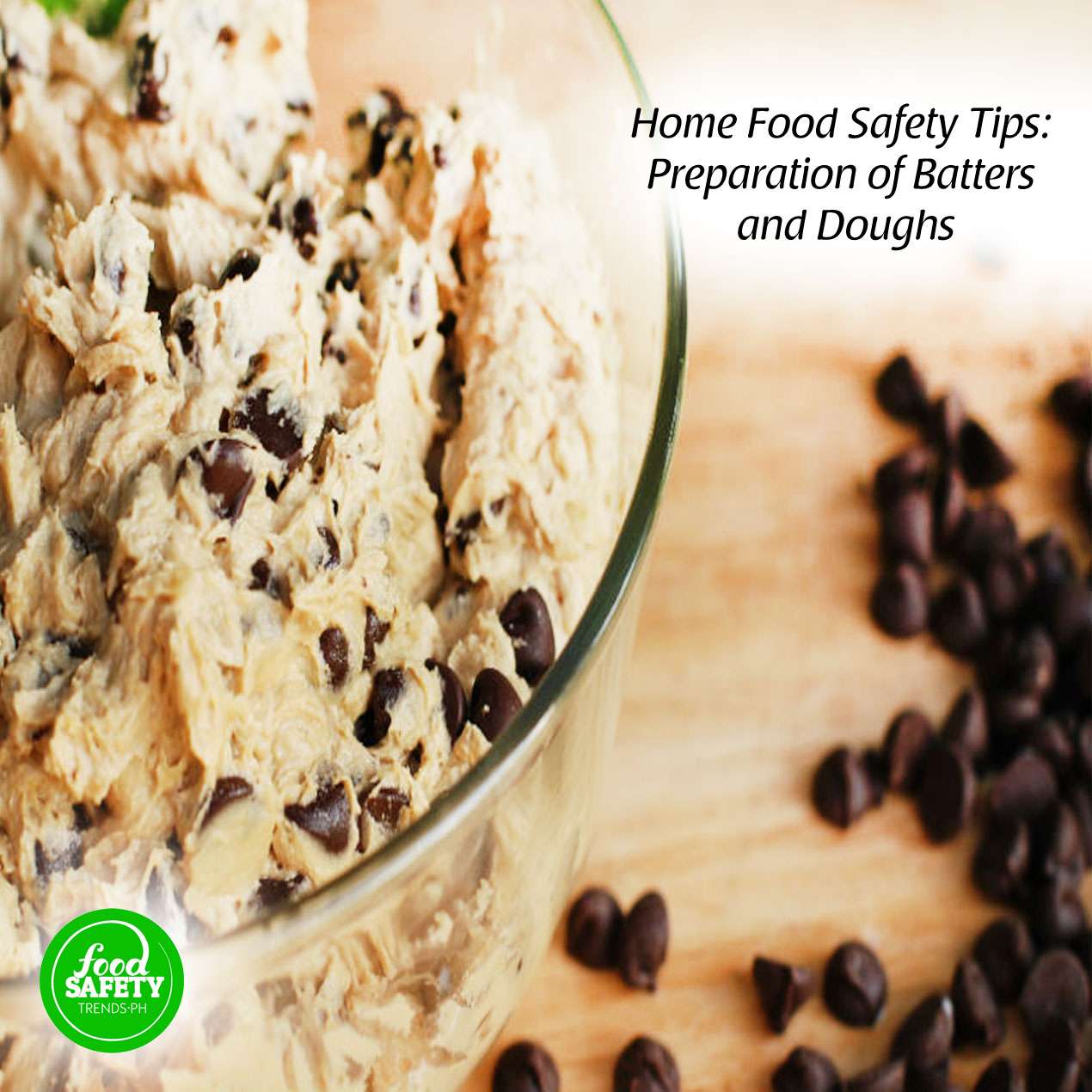
Do not eat raw batters! Unbaked batters and dough can be hazardous if not handled properly. They may contain high levels of Salmonella as most of the ingredients, particularly raw eggs, contain infective microorganisms and spores.
October 19, 2017
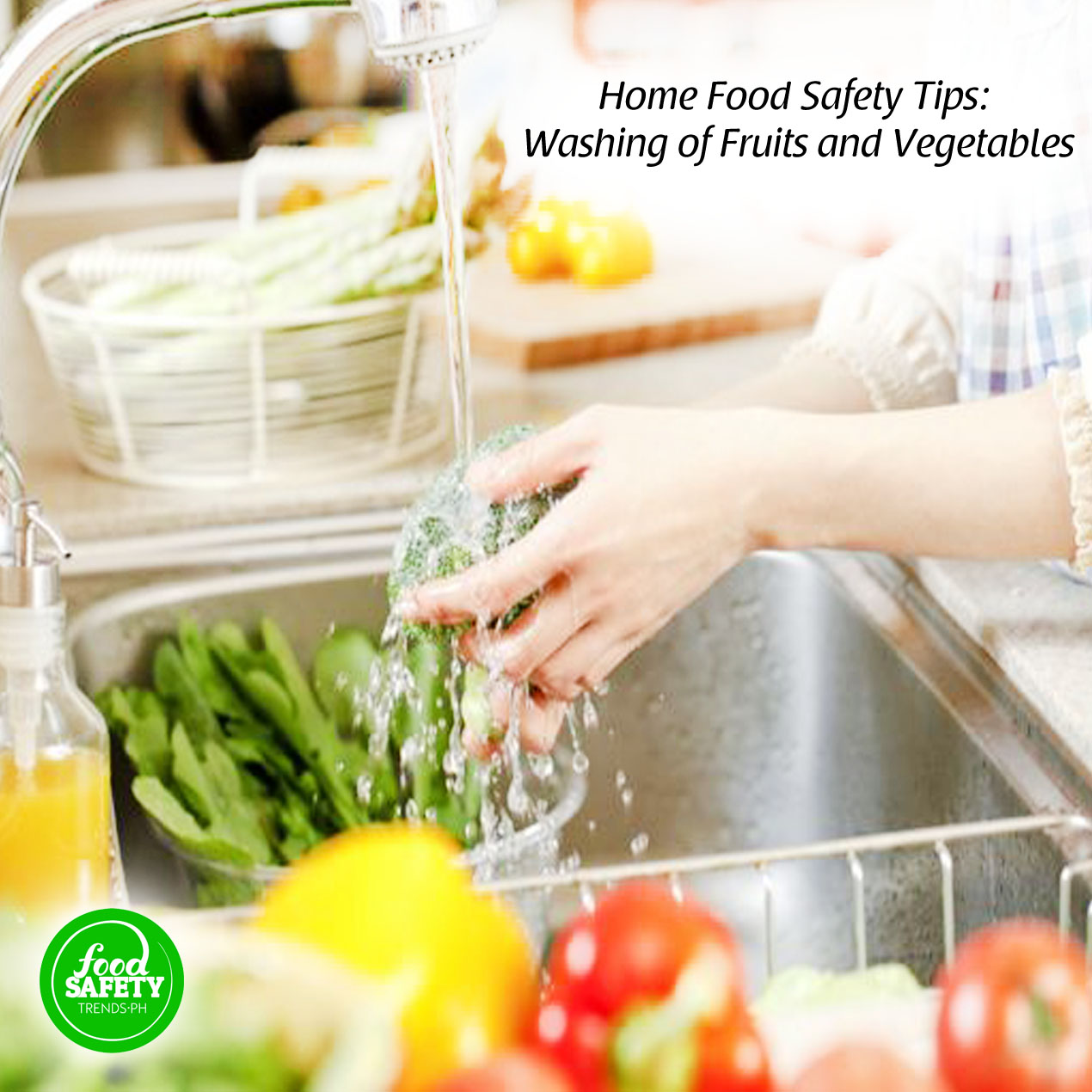
Follow these food safety tips in washing your fruits and vegetables
October 17, 2017
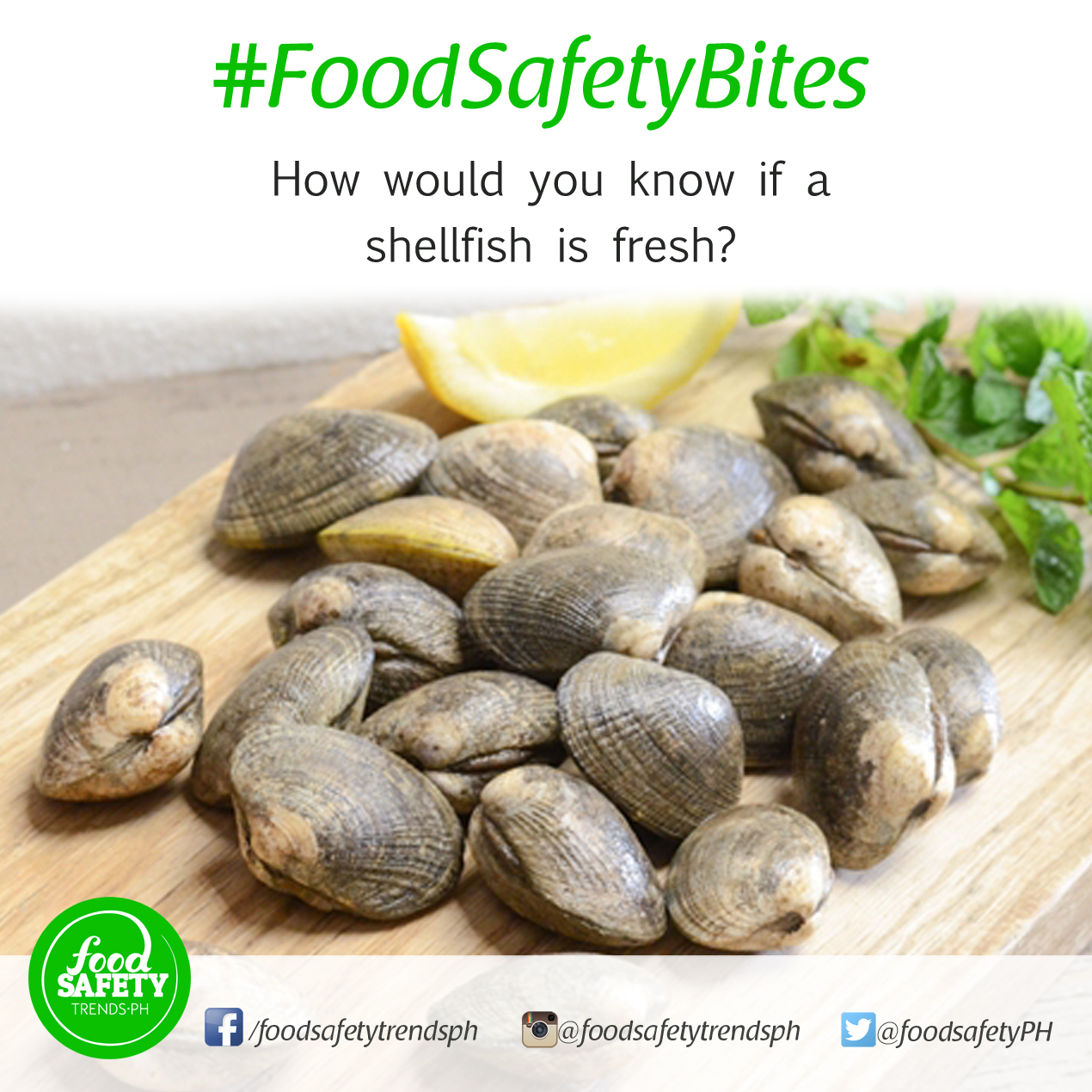
Here are some tips on buying fresh shellfish. Fresh oysters, clams, scallops, mussels and cockles should have tightly closed shells or they should close their shells when you tap them.
October 16, 2017
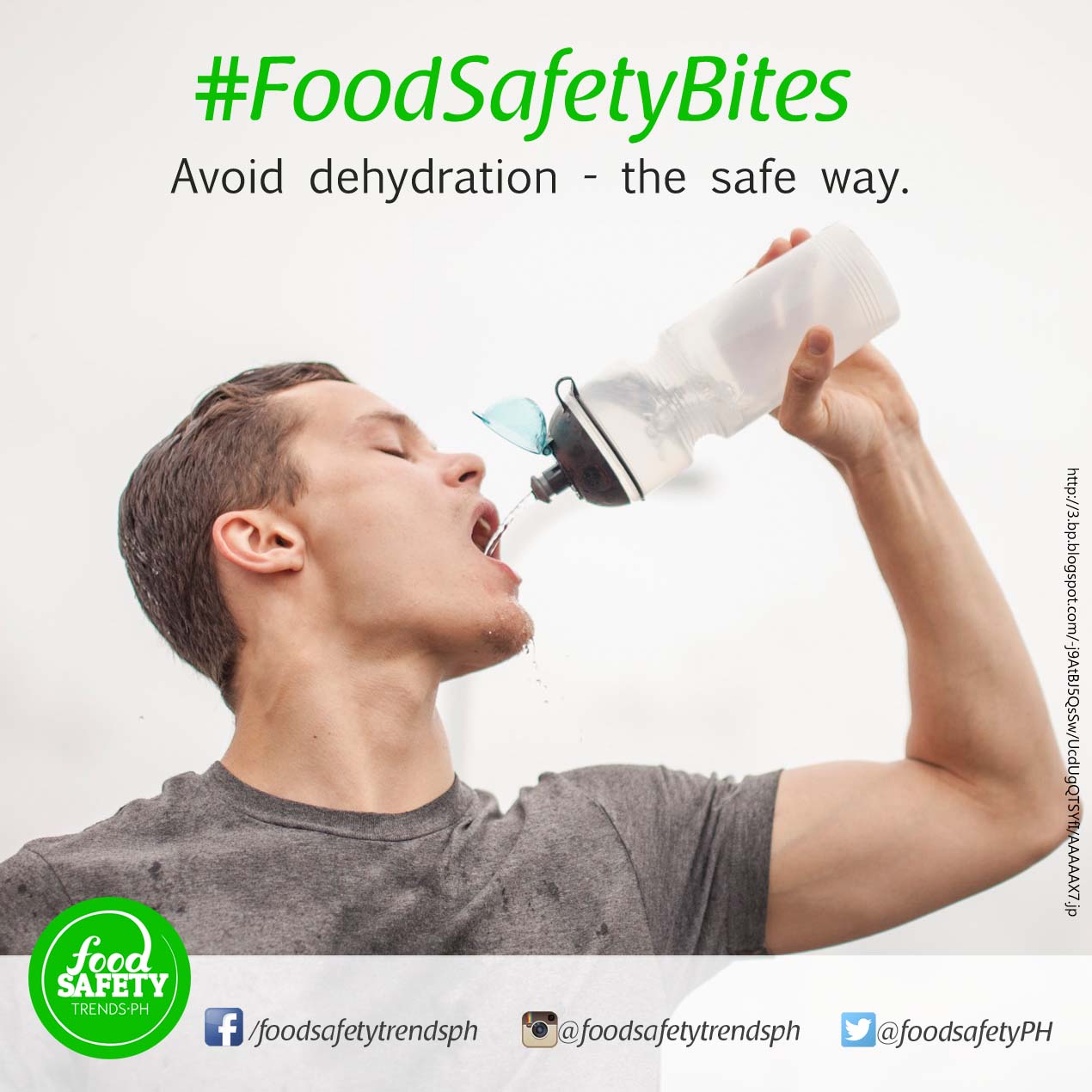
If you’re heading out into the great outdoors, make sure you use safe water to drink, cook and wash with.
October 12, 2017
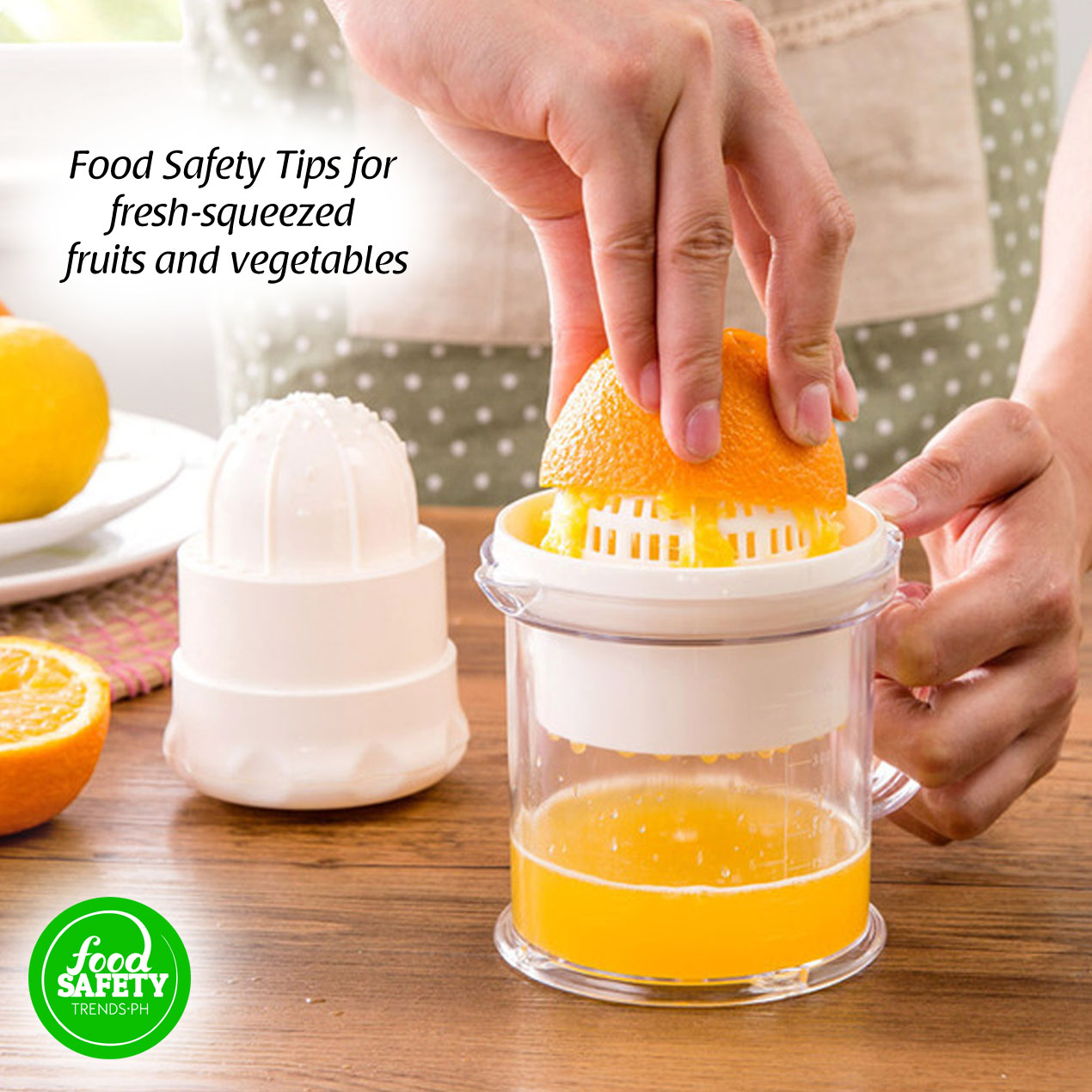
According to the U.S. Food and Drug Administration (FDA), juices provide many important nutrients, but consuming untreated juices can pose health risks to your family.
October 9, 2017
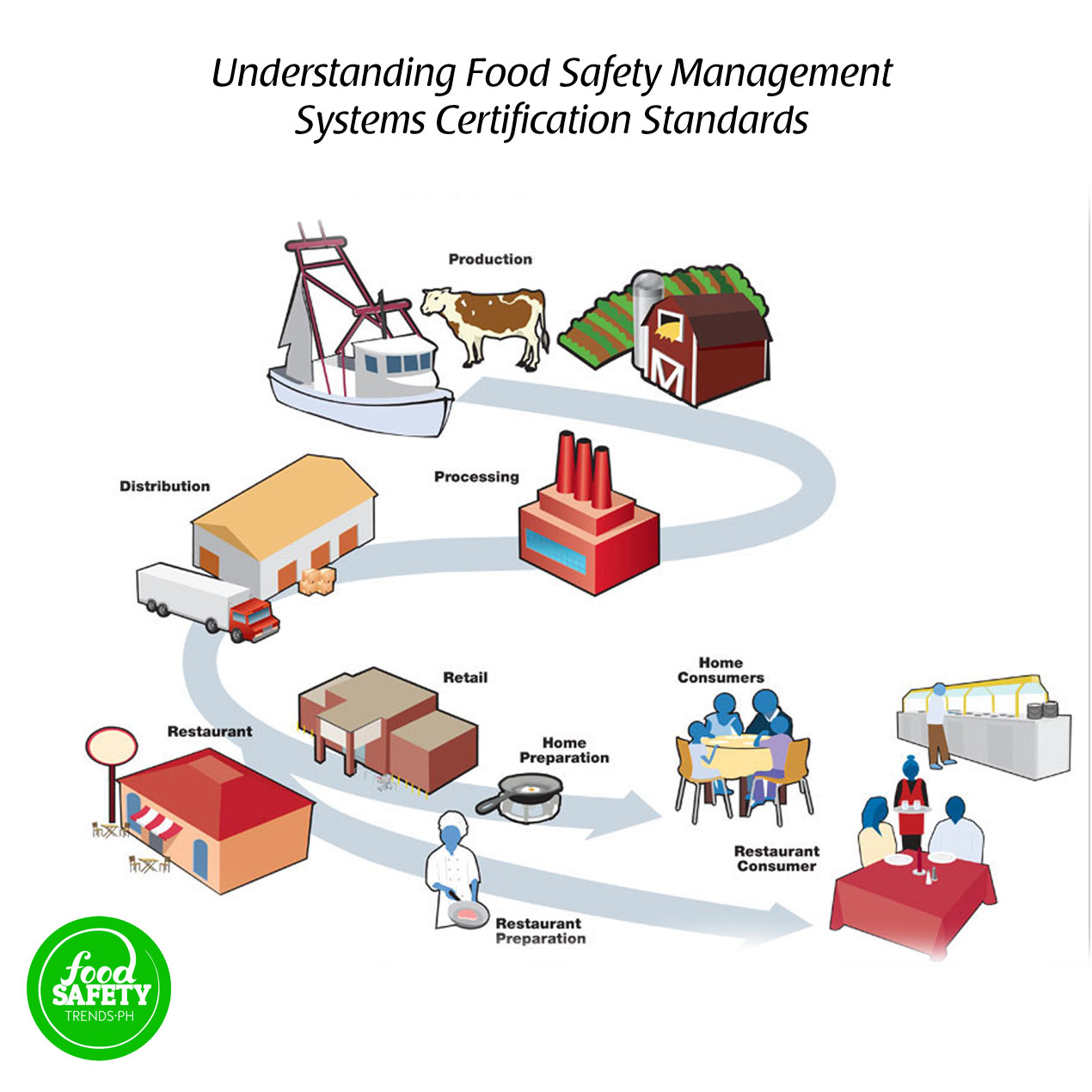
Internationally, the most widely applied form of self-regulation are the ISO certification and HACCP-based systems.
October 5, 2017
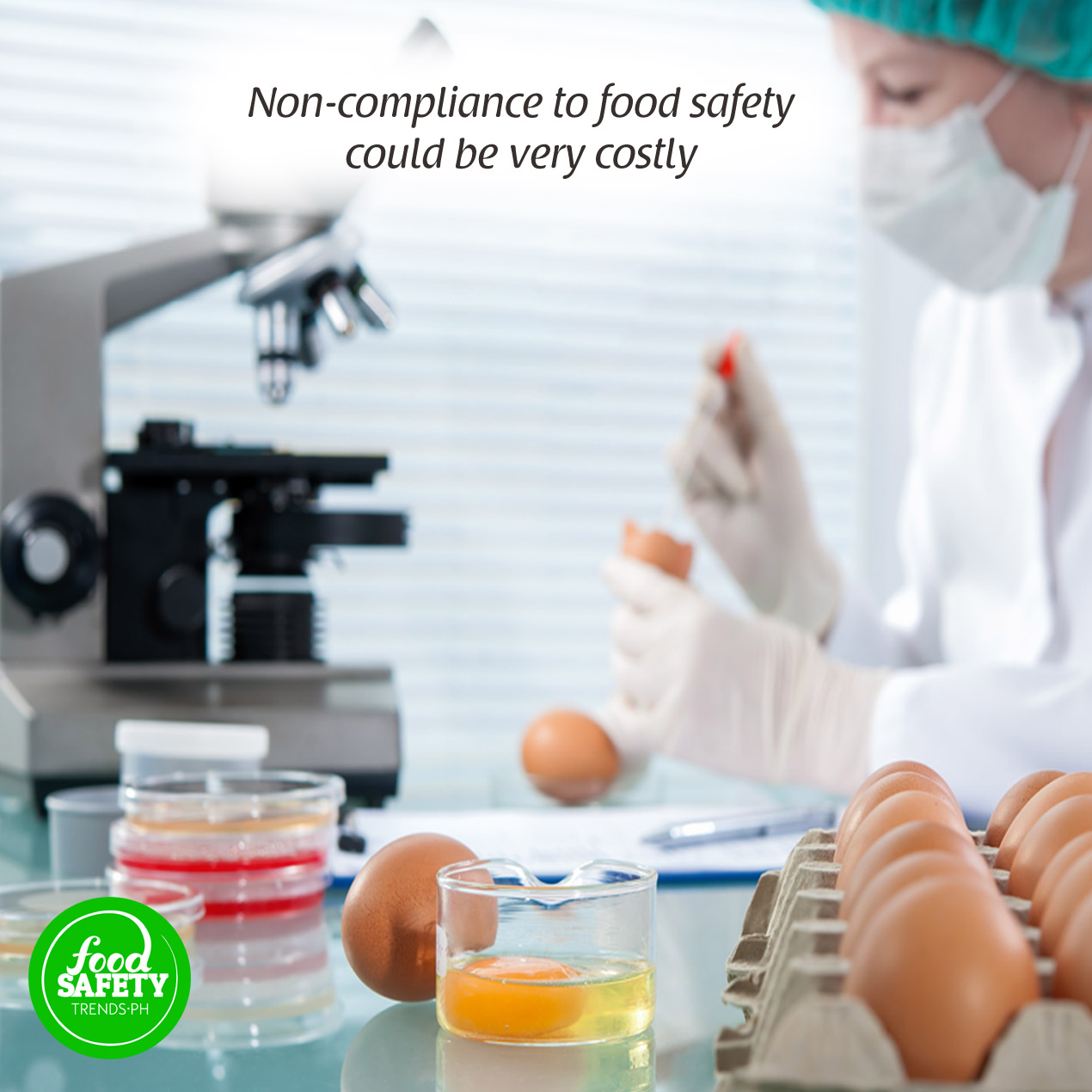
“There are multiple costs associated to health hazards caused by unsafe food, worst of which are the mortality of a fraction of the world’s population, and […]
October 4, 2017

Here are some food safety tips in preparing cold combination dishes: –Cold combination dishes are dishes made of the same food items as hot combination dishes […]
October 2, 2017
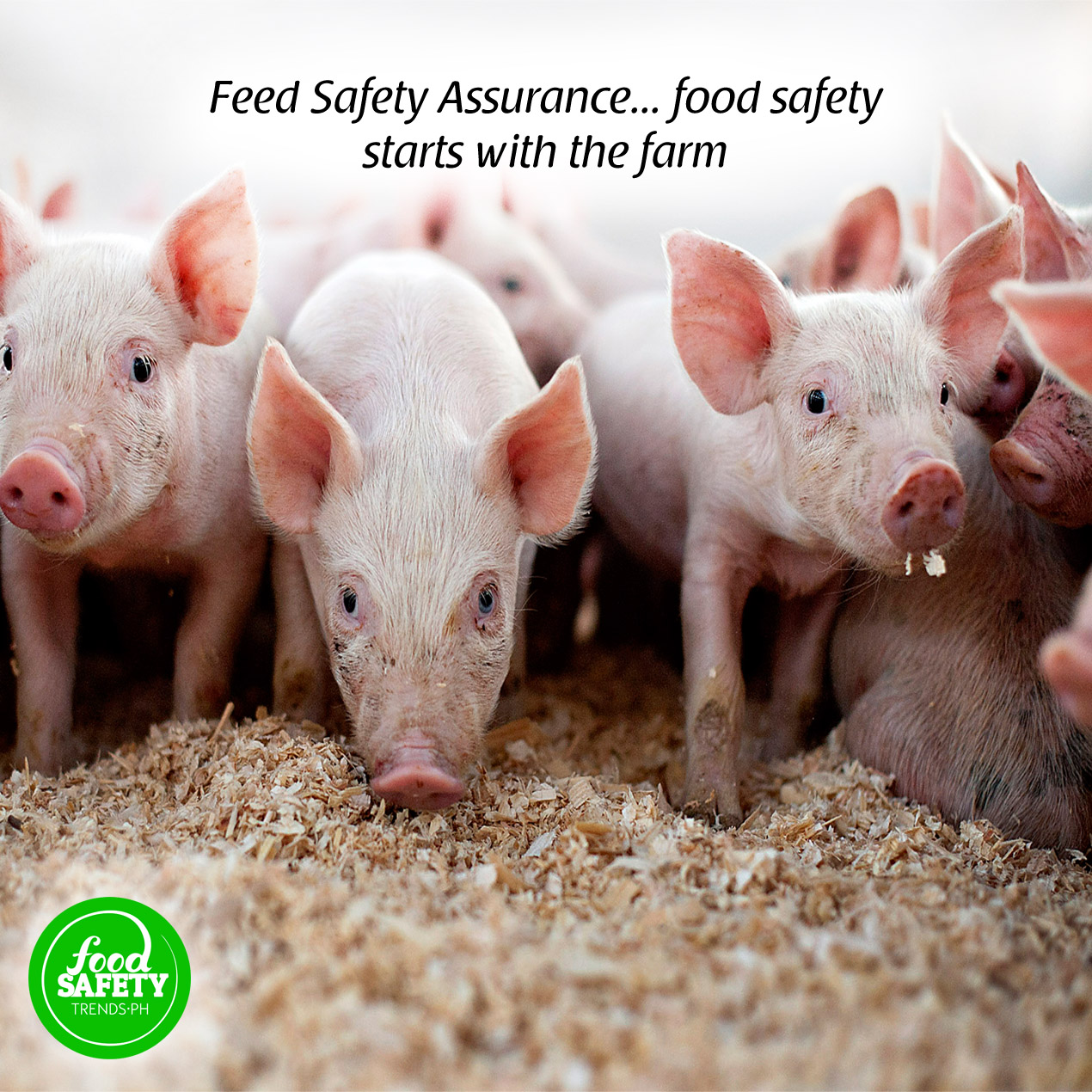
“As part of the food supply chain, it is the legal responsibility of feed manufacturers to ensure that only safe and quality products enter the food […]
September 29, 2017

According to U.S. Food and Drug Administration (FDA), fresh eggs, even those with clean, uncracked shells, may contain bacteria called Salmonella that can cause foodborne illness. […]
September 26, 2017
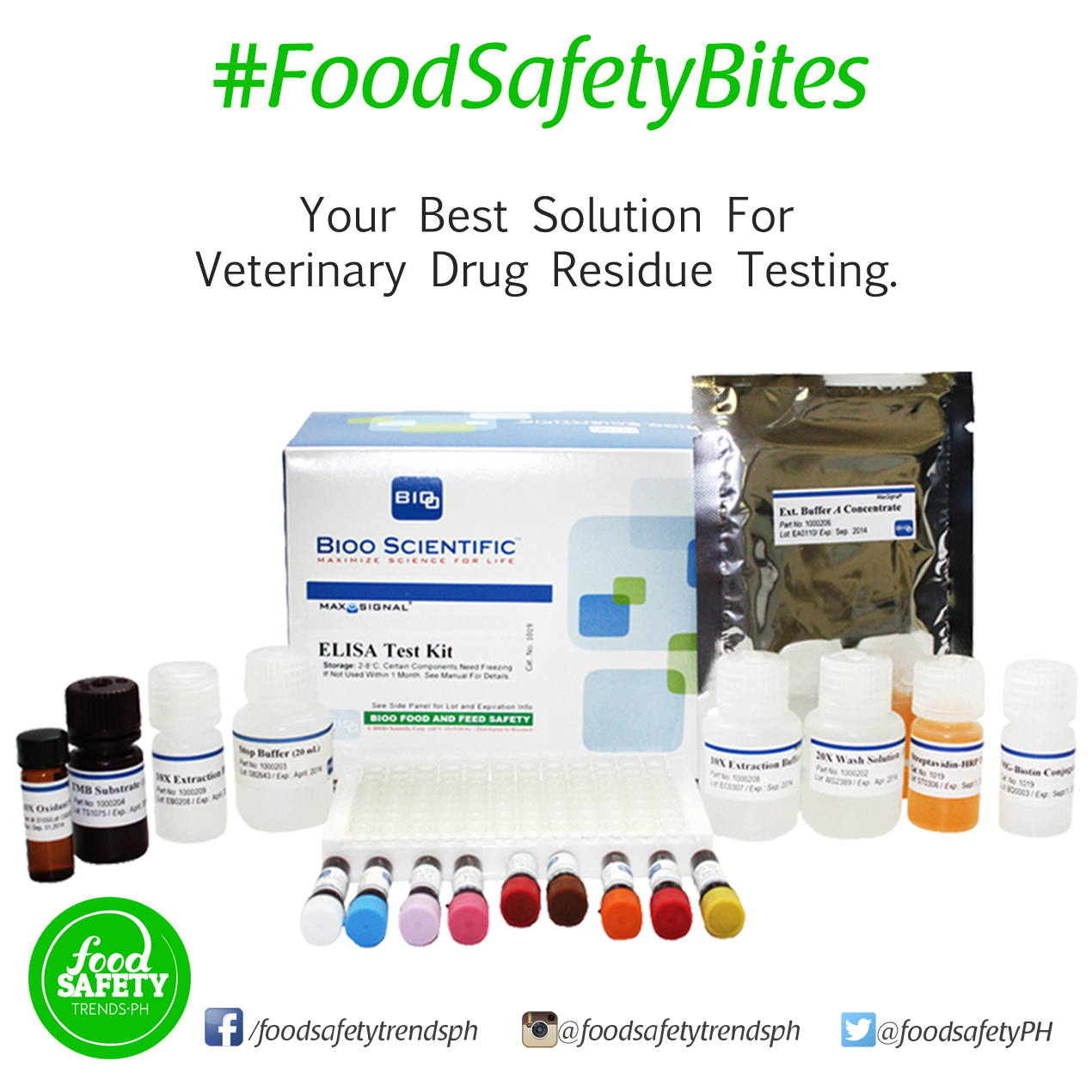
Glenwood Technologies offers a broad range of test kits for the screening of banned and restricted veterinary drug residues in a wide variety of food and […]
September 22, 2017
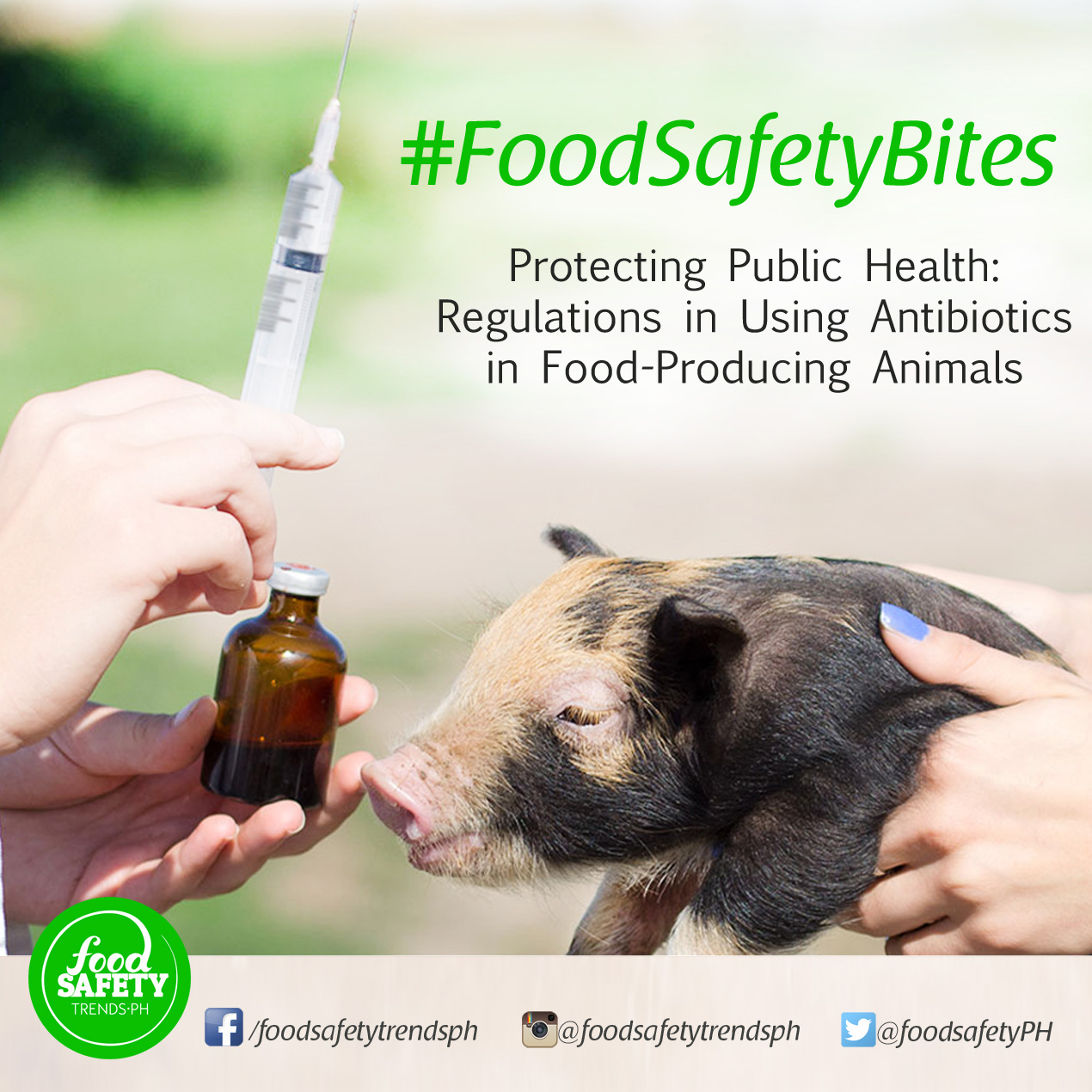
To promote consumer health against illegal use of veterinary drugs in food producing animals, the Department of Agriculture proclaimed Administrative Order No. 14 series of 2006, […]
September 20, 2017
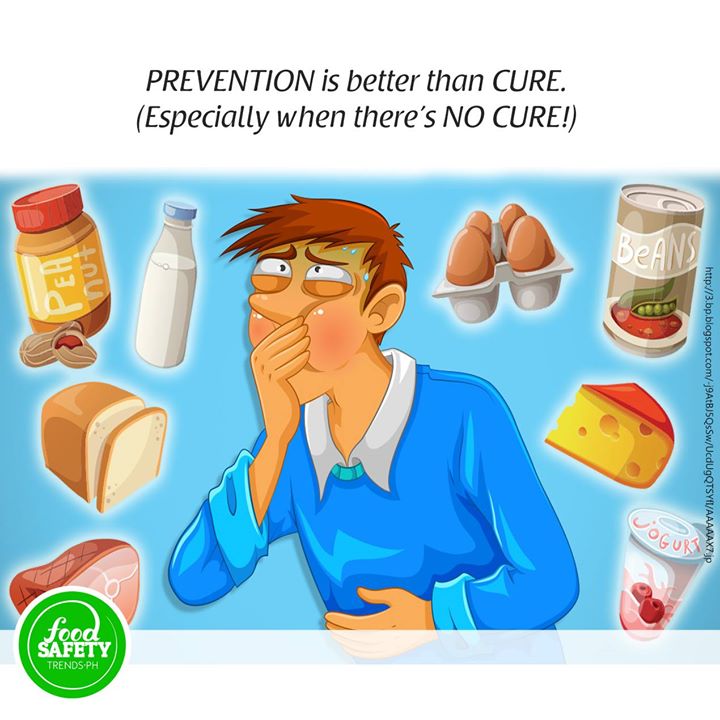
It’s more than the price, the taste or the fancy packaging, especially when you’re allergic to something. Check the labels and list of ingredients of the […]
September 6, 2017
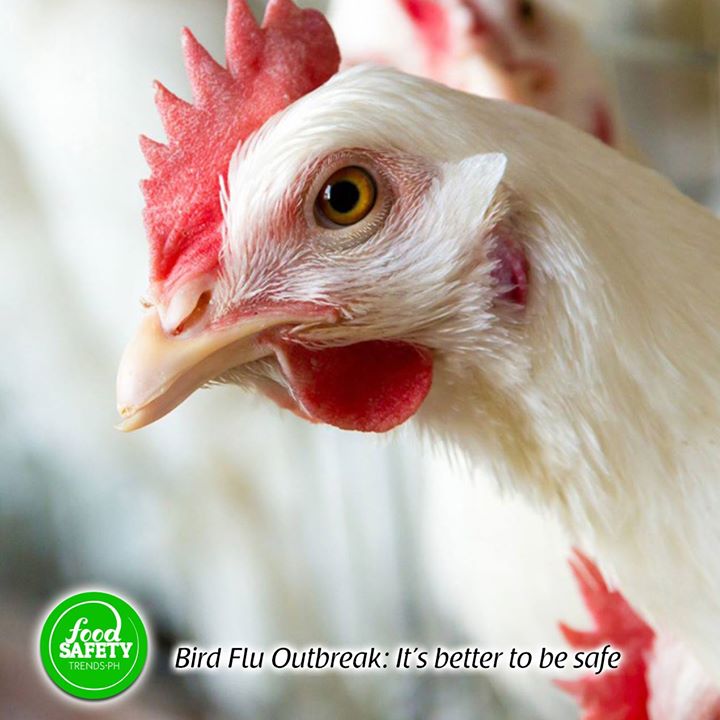
The news of Bird flu hitting some areas of Central Luzon, Philippines alarmed the nation. Further confirmed by the Department of Agriculture-Bureau of Animal Industry (DA-BAI) […]
September 4, 2017

See you at the Food and Drinks Asia 2017 and AsiaFood Expo 2017 on September 7-8, and September 13-14, 2017 at World Trade Center, Pasay City. […]
April 16, 2015
It is our mission to help ensure that every food served to every Filipino is safe for consumption. We do it by striving to be the key provider of premier diagnostic solutions and systems to the different industries involved in the food supply chain. With our continuous efforts to update our technical expertise and solutions, we aim to change the landscape of the food safety culture in the country.
April 15, 2015
Your feedback matters. We will answer as soon as possible. Please be advised that response may be delayed due to weekends and public holidays.
April 15, 2015
In line with our advocacy, we came up with Food Safety Trends Philippines, the very first magazine on food safety and quality awareness from farm to table which focuses on the Philippine setting. Together with the help of notable food safety experts and ambassadors across the globe, the magazine was tailored to address the food safety concerns encountered by the Philippine food industry. We are hopeful that, in our modest way, Food Safety Trends Philippines will contribute to the greater recognition of the Philippine approach to uplift our food safety enhancement systems
October 29, 2014
Since its establishment in 1995, Glenwood Technologies International, Inc. has been the leader in exclusive distribution of premium rapid diagnostics and hygiene monitoring kits from trusted manufacturers worldwide, providing quality and technologically advanced products to meet the emerging needs for feed and food safety in the Philippines among others.



